Shows
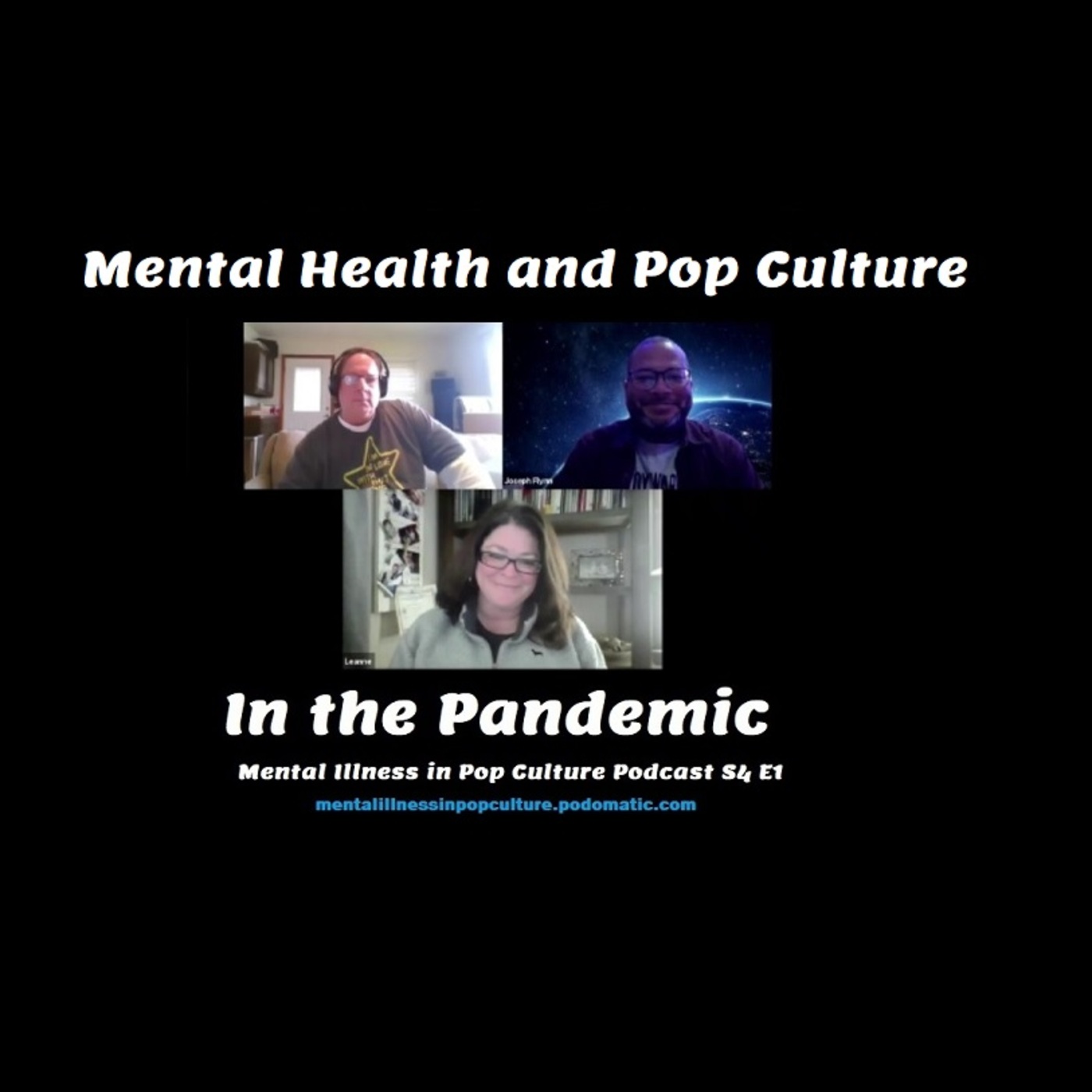 Mental Illness in Pop CultureMental Health and Pop Culture in the Pandemic: Mental Illness in Pop Culture S4 E1Video version of this podcast episode at https://youtu.be/aBD0yaUyGms
We kick off season 4 of Mental Illness in Pop Culture by adding video, reintroducing ourselves. and getting authentic about mental health and pop culture during the pandemic. We each talk about personal mental health issues during this crisis as well as how our professional lives have been affected: Leanne as executive director of a homeless shelter, and Joe & Scott as educators. We also reflect on pandemic pop culture. We finish with the full version of our theme song, bringing together "Mental Illness in Pop Culture" with Scott's lifetime...2020-05-3058 min
Mental Illness in Pop CultureMental Health and Pop Culture in the Pandemic: Mental Illness in Pop Culture S4 E1Video version of this podcast episode at https://youtu.be/aBD0yaUyGms
We kick off season 4 of Mental Illness in Pop Culture by adding video, reintroducing ourselves. and getting authentic about mental health and pop culture during the pandemic. We each talk about personal mental health issues during this crisis as well as how our professional lives have been affected: Leanne as executive director of a homeless shelter, and Joe & Scott as educators. We also reflect on pandemic pop culture. We finish with the full version of our theme song, bringing together "Mental Illness in Pop Culture" with Scott's lifetime...2020-05-3058 min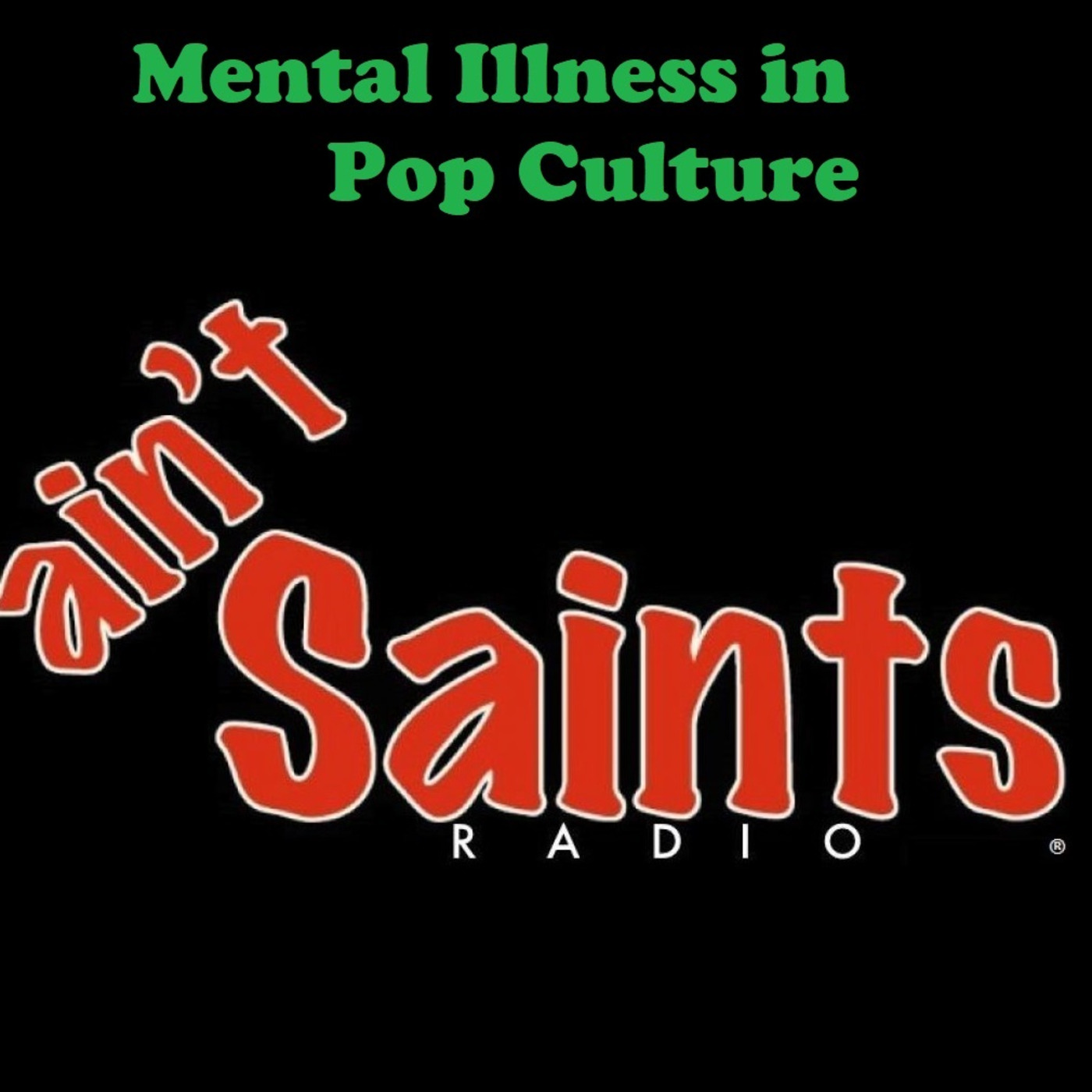 Mental Illness in Pop CultureAin't Saints Radio: Mental Illness in Pop CultureRecovery and redemption: It’s who they are and what they do.
The Ain’t Saints Radio crew join Mental Illness in Pop Culture’s team for a podcast about their podcast. Each Ain’t Saints Radio episode features guests’ stories of addiction, recovery, and redemption while also incorporating banter, music, and humor. We discuss their motivation and individual backstories as well as relate their show to its inherent therapeutic factors and the core conditions of person-centered counseling. We also wax nostalgic about Waukegan East High School (Go Bulldogs!) and share personal examples of the importance of diversity in education.
Ain’t Sain...2018-10-1652 min
Mental Illness in Pop CultureAin't Saints Radio: Mental Illness in Pop CultureRecovery and redemption: It’s who they are and what they do.
The Ain’t Saints Radio crew join Mental Illness in Pop Culture’s team for a podcast about their podcast. Each Ain’t Saints Radio episode features guests’ stories of addiction, recovery, and redemption while also incorporating banter, music, and humor. We discuss their motivation and individual backstories as well as relate their show to its inherent therapeutic factors and the core conditions of person-centered counseling. We also wax nostalgic about Waukegan East High School (Go Bulldogs!) and share personal examples of the importance of diversity in education.
Ain’t Sain...2018-10-1652 min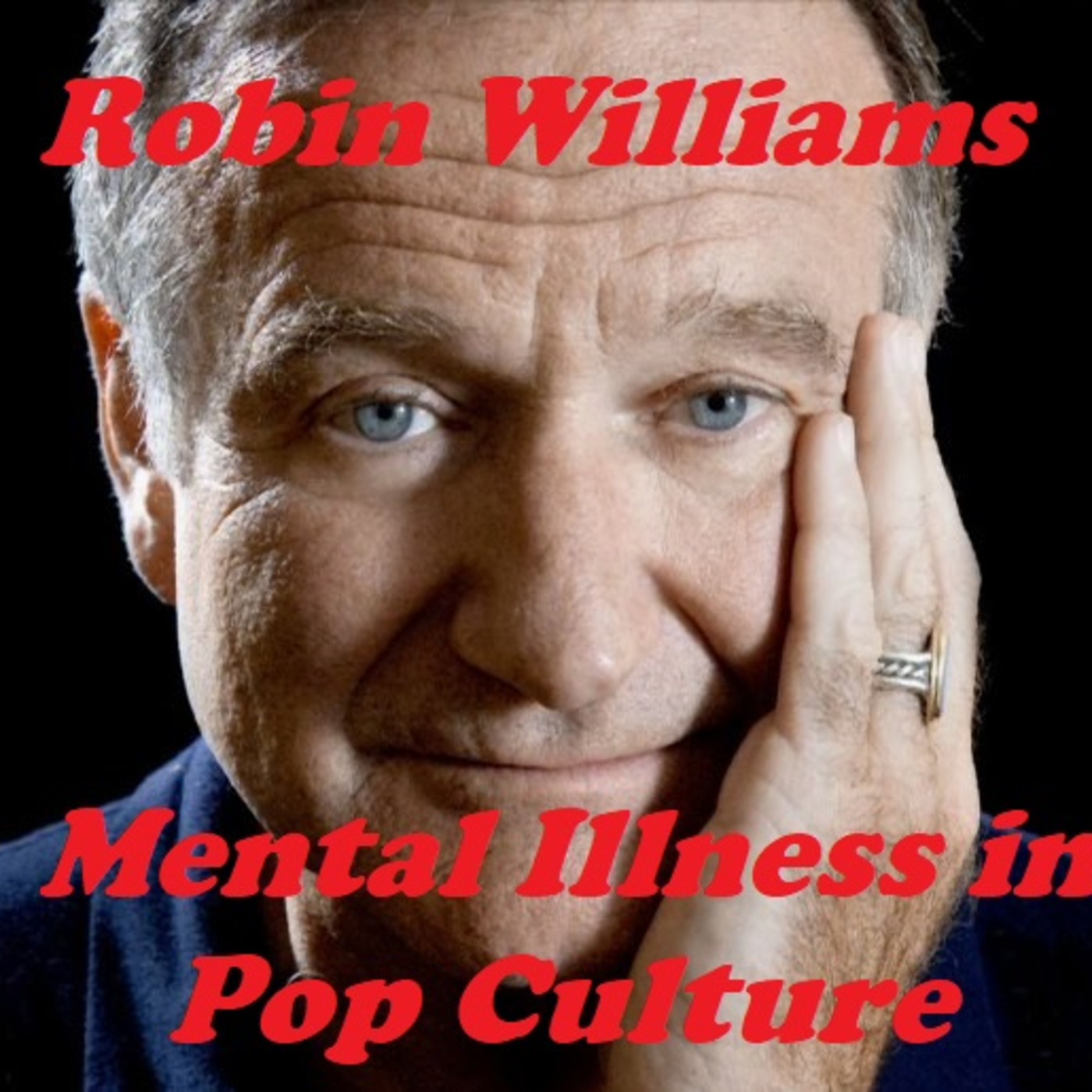 Mental Illness in Pop CultureRobin Williams' Come Inside My Mind: Mental Illness in Pop CultureVulnerability, generativity, and a search for intimacy emerge as pervasive themes as we process and make sense of comedian and actor Robin Williams’ life, based on the HBO documentary Come Inside My Mind.
We talk about hypomania, addiction, depression, amazing films that people are better for having seen, and, ultimately, suicide related to Lewy Body Dementia.
In this podcast series, we focus on pop culture portrayals of mental health issues and professional helping, believing that public perception is both reflected and influenced by popular media2018-08-2741 min
Mental Illness in Pop CultureRobin Williams' Come Inside My Mind: Mental Illness in Pop CultureVulnerability, generativity, and a search for intimacy emerge as pervasive themes as we process and make sense of comedian and actor Robin Williams’ life, based on the HBO documentary Come Inside My Mind.
We talk about hypomania, addiction, depression, amazing films that people are better for having seen, and, ultimately, suicide related to Lewy Body Dementia.
In this podcast series, we focus on pop culture portrayals of mental health issues and professional helping, believing that public perception is both reflected and influenced by popular media2018-08-2741 min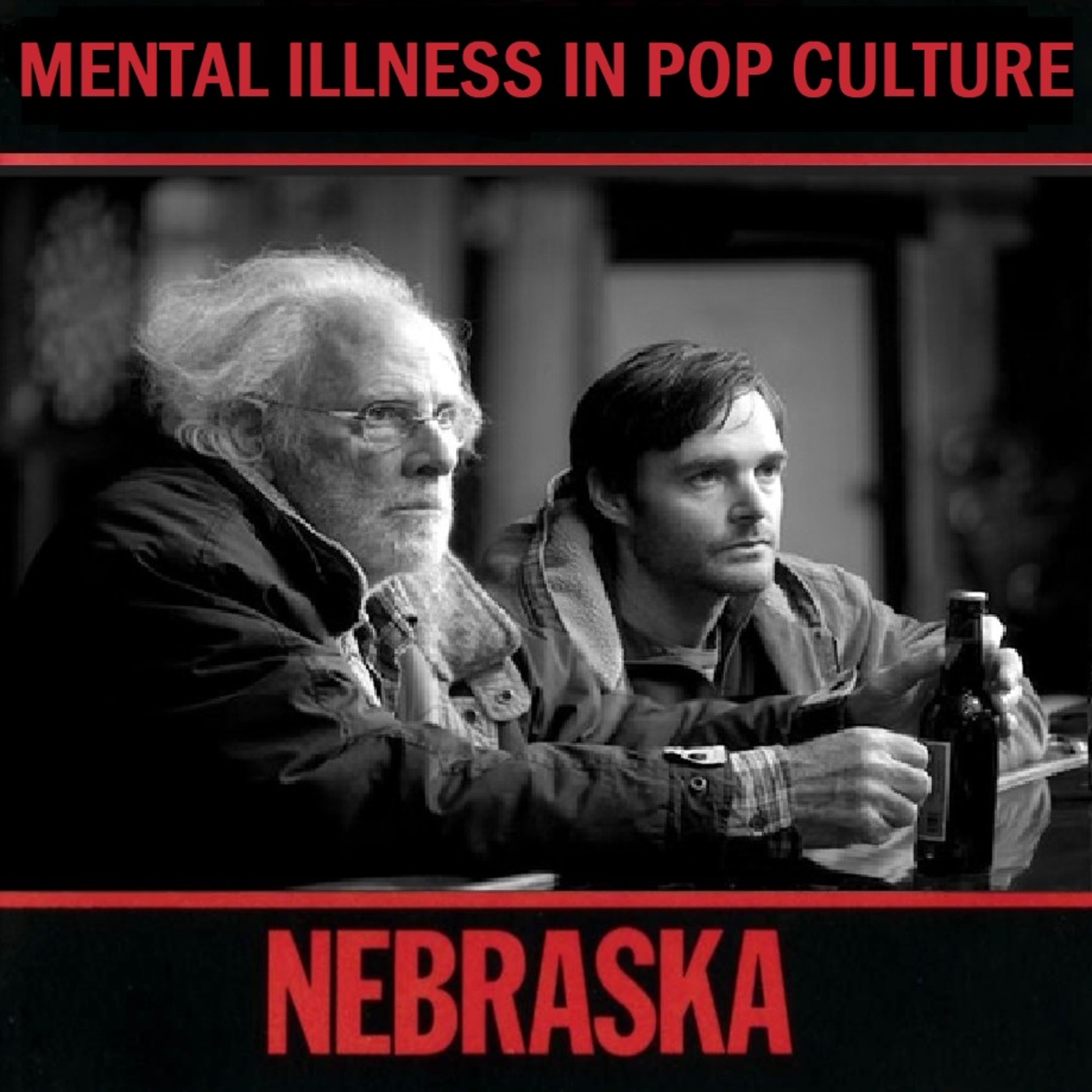 Mental Illness in Pop CultureNebraska: Mental Illness in Pop CultureIn this episode of Mental Illness in Pop Culture, we explore age-related cognitive impairment, alcoholism, rural midwestern culture, family dynamics, and the psychosocial development stage Ego Integrity vs. Despair in Nebraska, directed by Alexander Payne and starring Bruce Dern.
Guest podcaster Ethan Conner joins his dad Scott and colleague Joe Flynn to discuss this father-son road-trip film. We frame our discussion with the Bruce Springsteen album Nebraska as we reflect on the film’s stark, black & white, and often plainspoken themes, concluding that “Reason to Believe” could just as well have been used as a subtitle.
In this podcast series, we foc...2018-08-1258 min
Mental Illness in Pop CultureNebraska: Mental Illness in Pop CultureIn this episode of Mental Illness in Pop Culture, we explore age-related cognitive impairment, alcoholism, rural midwestern culture, family dynamics, and the psychosocial development stage Ego Integrity vs. Despair in Nebraska, directed by Alexander Payne and starring Bruce Dern.
Guest podcaster Ethan Conner joins his dad Scott and colleague Joe Flynn to discuss this father-son road-trip film. We frame our discussion with the Bruce Springsteen album Nebraska as we reflect on the film’s stark, black & white, and often plainspoken themes, concluding that “Reason to Believe” could just as well have been used as a subtitle.
In this podcast series, we foc...2018-08-1258 min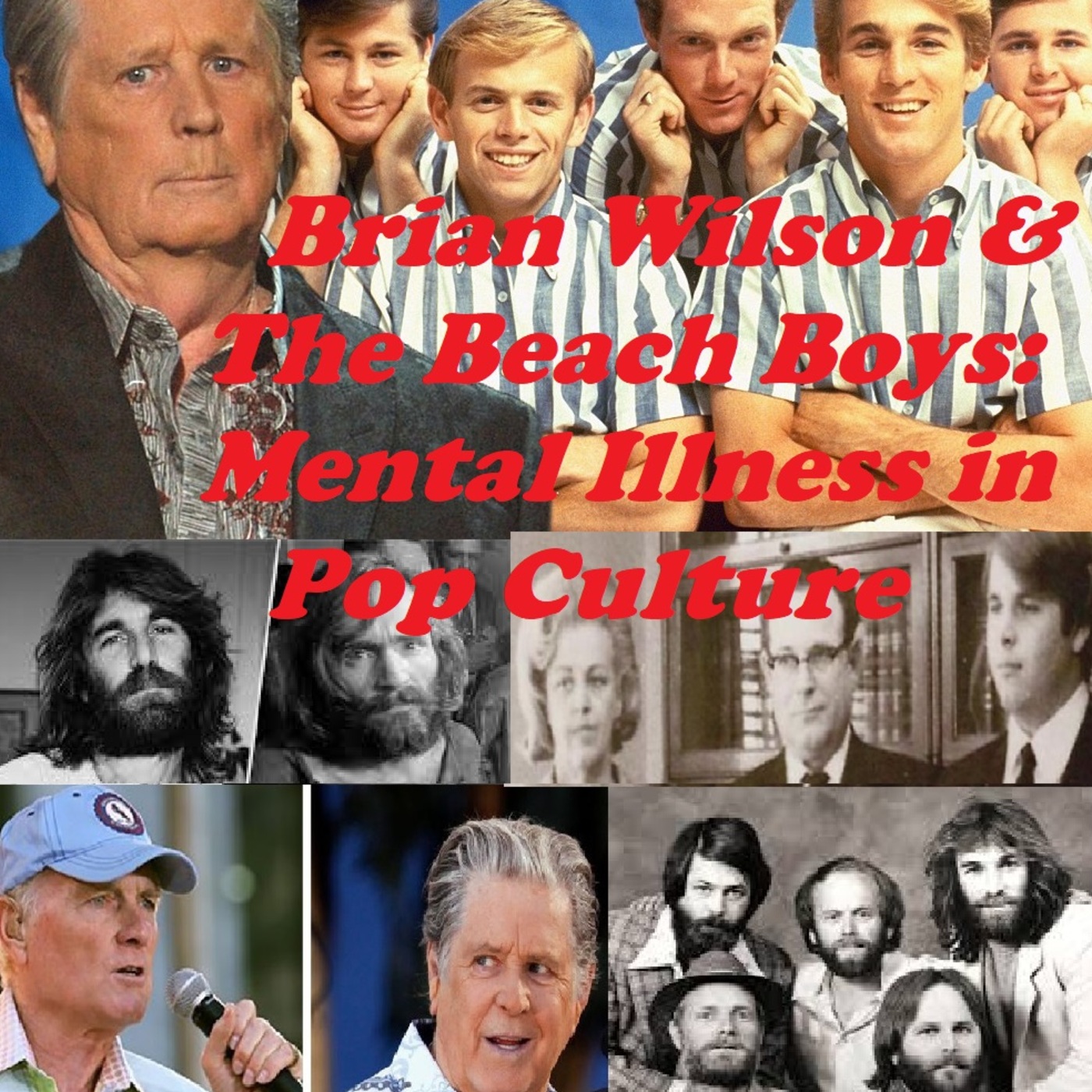 Mental Illness in Pop CultureBrian Wilson and The Beach Boys: Mental Illness in Pop CultureIn this episode of Mental Illness in Pop Culture, Beach Boys superfan Mark McGowan joins us as we explore family dynamics, birth order, addiction, schizoaffective disorder, creative genius, Love and Mercy, Charles Manson, the ethics of 24-hour therapy, and cousin rivalry, related to Brian Wilson, the Wilson family, and Mike Love.
Podcaster Scott tries to make a case that Pet Sounds IS “God Only Knows,” arguably the greatest pop song of all time, plus a bunch of other “really interesting” songs (in the same vein as “A Day in the Life” hypothetically would be to Sergeant Pepper’s Lonely Hearts Club Band) but...2018-08-0450 min
Mental Illness in Pop CultureBrian Wilson and The Beach Boys: Mental Illness in Pop CultureIn this episode of Mental Illness in Pop Culture, Beach Boys superfan Mark McGowan joins us as we explore family dynamics, birth order, addiction, schizoaffective disorder, creative genius, Love and Mercy, Charles Manson, the ethics of 24-hour therapy, and cousin rivalry, related to Brian Wilson, the Wilson family, and Mike Love.
Podcaster Scott tries to make a case that Pet Sounds IS “God Only Knows,” arguably the greatest pop song of all time, plus a bunch of other “really interesting” songs (in the same vein as “A Day in the Life” hypothetically would be to Sergeant Pepper’s Lonely Hearts Club Band) but...2018-08-0450 min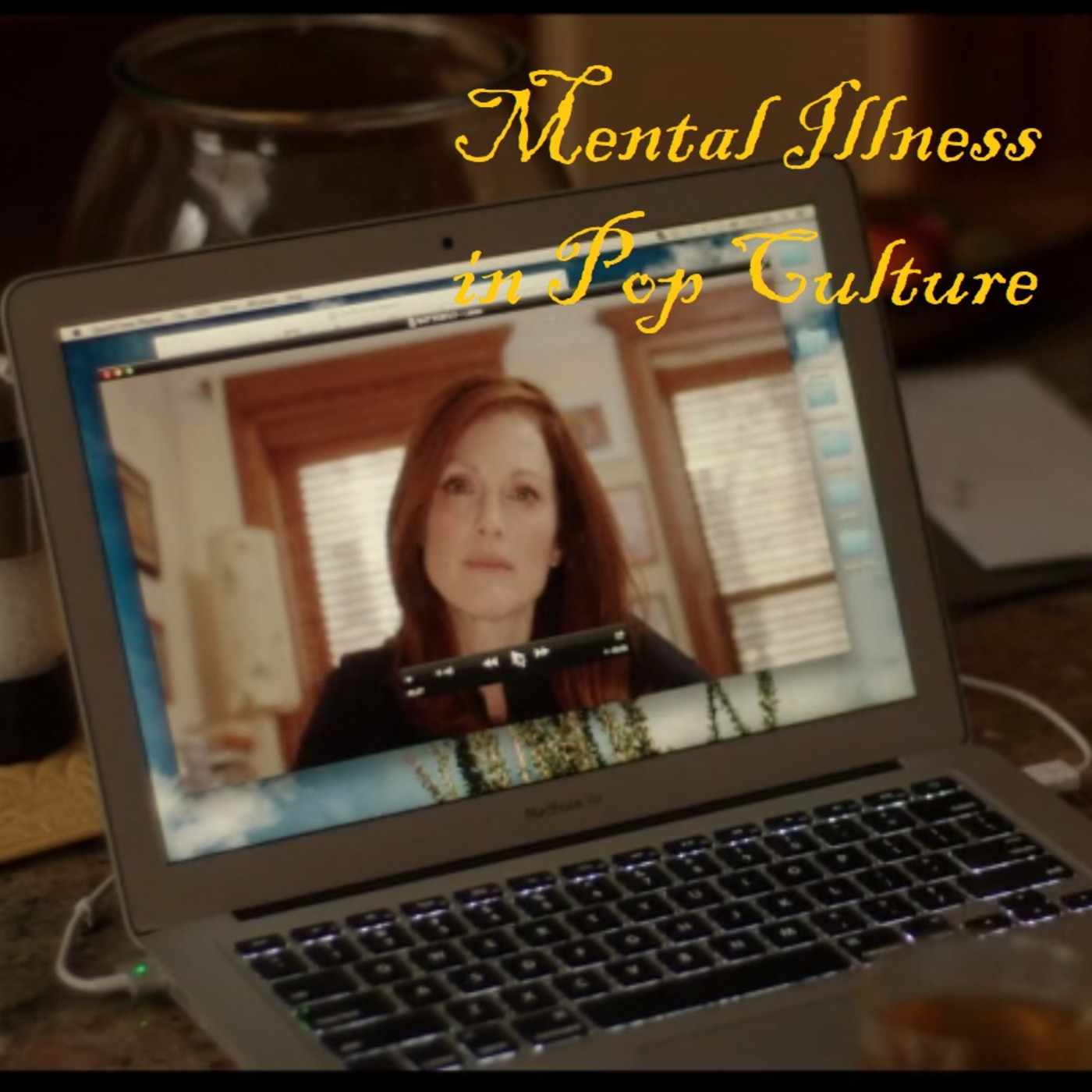 Mental Illness in Pop CultureStill Alice: Mental Illness in Pop CultureIn this episode of Mental Illness in Pop Culture, we analyze the impact of early familial Alzheimer’s in Still Alice, with Julianne Moore in the Academy Award-winning title role. We focus not only on how Alice and her family deal with her increasing cognitive impairment throughout the film but also reflect on identity loss, family dynamics, birth order roles, existential themes, the film’s importance for counselors and other professional helpers, and our own fears as we contemplate how this topic relates to our families and possible futures.
This episode is dedicated to my birth father, Joe Rowland, 1939-2018.
In t...2018-07-3148 min
Mental Illness in Pop CultureStill Alice: Mental Illness in Pop CultureIn this episode of Mental Illness in Pop Culture, we analyze the impact of early familial Alzheimer’s in Still Alice, with Julianne Moore in the Academy Award-winning title role. We focus not only on how Alice and her family deal with her increasing cognitive impairment throughout the film but also reflect on identity loss, family dynamics, birth order roles, existential themes, the film’s importance for counselors and other professional helpers, and our own fears as we contemplate how this topic relates to our families and possible futures.
This episode is dedicated to my birth father, Joe Rowland, 1939-2018.
In t...2018-07-3148 min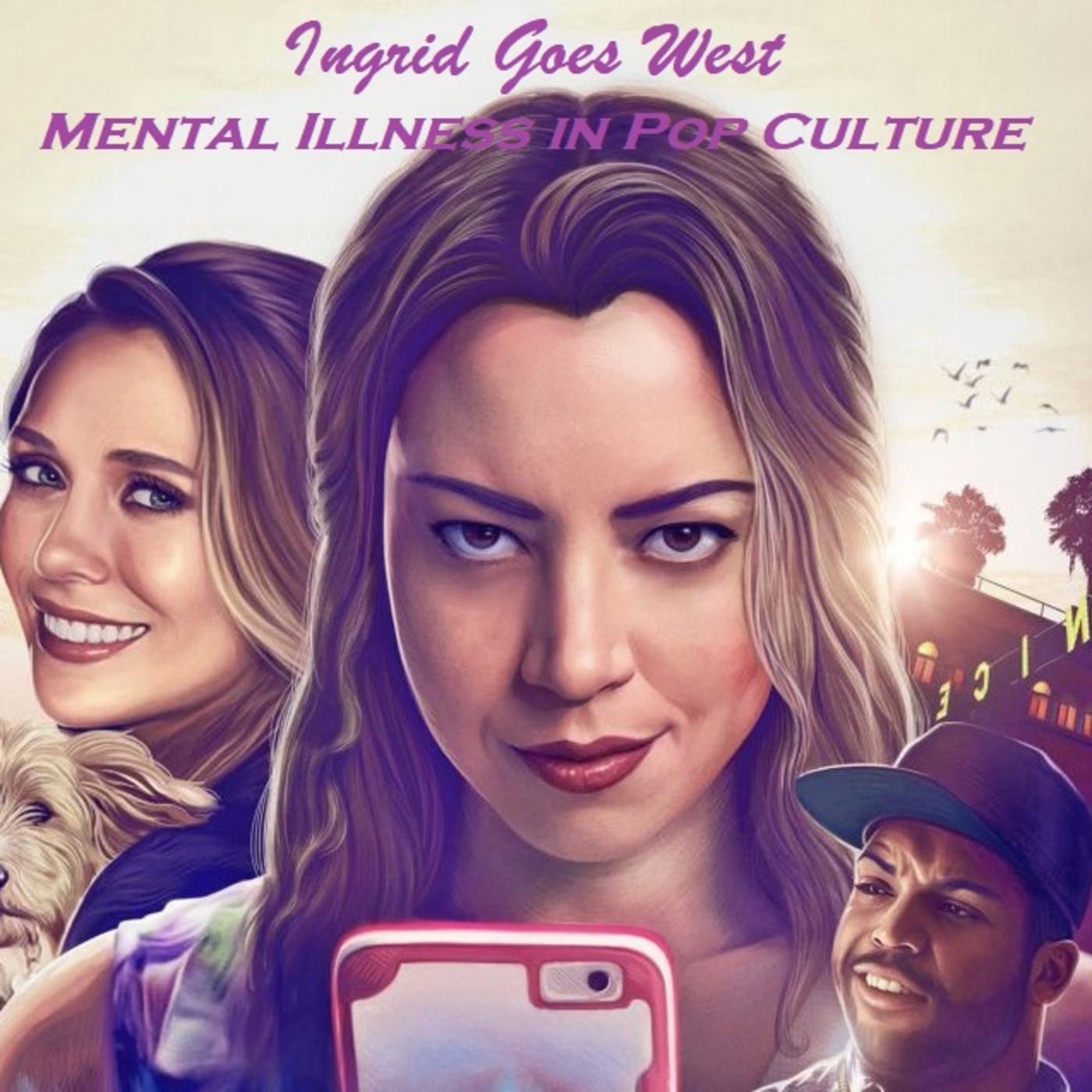 Mental Illness in Pop CultureIngrid Goes West: Mental Illness in Pop CultureIn this episode of Mental Illness in Pop Culture, our analysis of Ingrid Goes West starring Aubrie Plaza leads to an exploration of obsession, social media, and “like” culture -- in the film . . . and our lives! Ingrid’s IRL identity focuses on avoiding pain through attachment to online celebrities who have gained status by masking authenticity. Along with guest podcaster Diana Mondragon, we debate the ending’s humor and find the film’s overall ideas reflective of what may currently be trending in life.
In this podcast series, we focus on pop culture portrayals of mental health issues and professional helping, b...2018-07-2836 min
Mental Illness in Pop CultureIngrid Goes West: Mental Illness in Pop CultureIn this episode of Mental Illness in Pop Culture, our analysis of Ingrid Goes West starring Aubrie Plaza leads to an exploration of obsession, social media, and “like” culture -- in the film . . . and our lives! Ingrid’s IRL identity focuses on avoiding pain through attachment to online celebrities who have gained status by masking authenticity. Along with guest podcaster Diana Mondragon, we debate the ending’s humor and find the film’s overall ideas reflective of what may currently be trending in life.
In this podcast series, we focus on pop culture portrayals of mental health issues and professional helping, b...2018-07-2836 min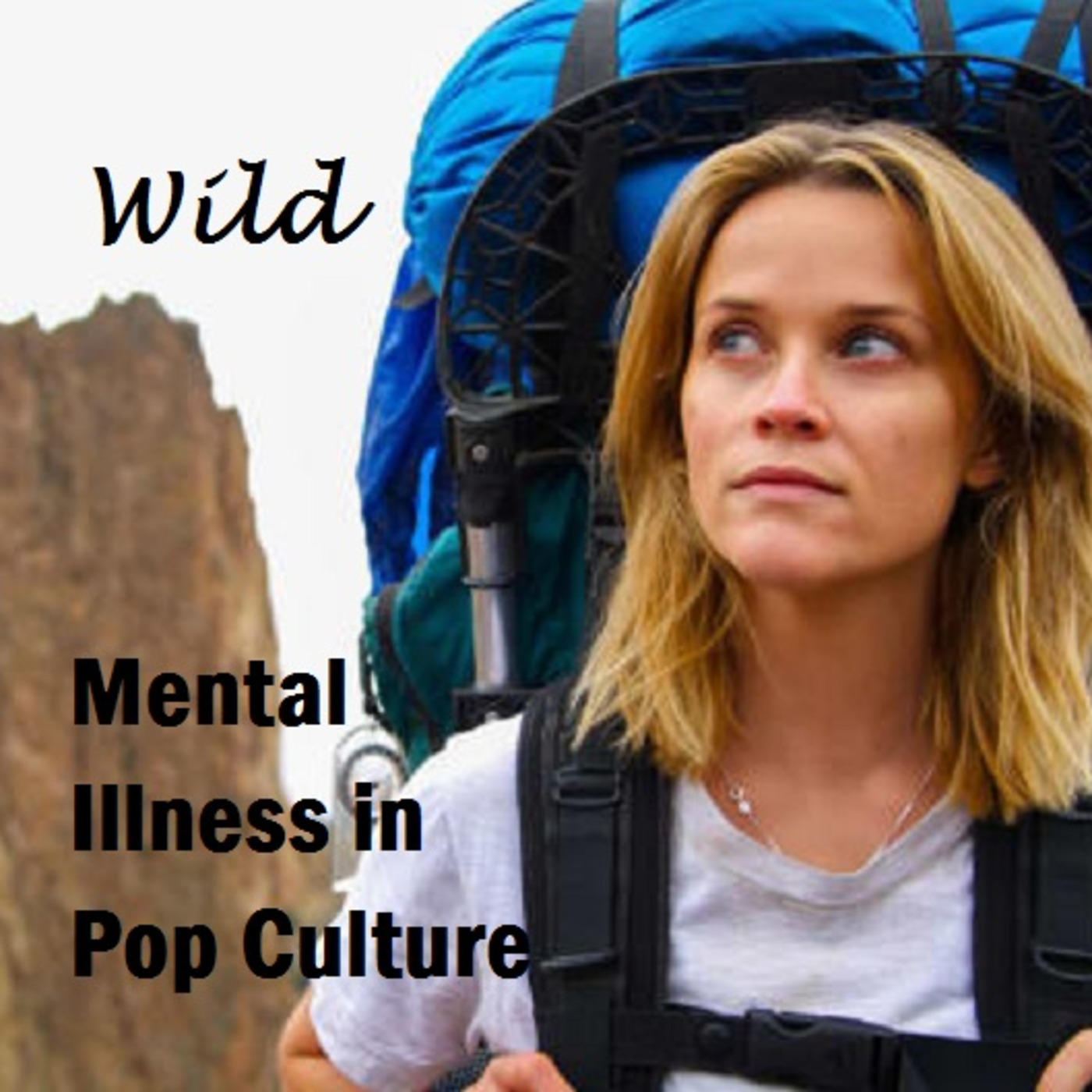 Mental Illness in Pop CultureWild: Mental Illness in Pop CultureIn this episode of Mental Illness in Pop Culture, we explore revelation and restoration in Wild, starring Reese Witherspoon, based on author Cheryl Strayed's 1,000-mile walkabout to overcome addiction and depression following grief and loss. We examine the archetypal "hero's journey" -- transformation by prevailing over wounds and challenges. We also discuss some of the film's other symbols and archetypes, its carefully chosen music, and, ultimately, its reflection of the human condition.
In this podcast series, we focus on pop culture portrayals of mental health issues and professional helping, believing that public perception is both reflected and influenced by popular...2018-07-2341 min
Mental Illness in Pop CultureWild: Mental Illness in Pop CultureIn this episode of Mental Illness in Pop Culture, we explore revelation and restoration in Wild, starring Reese Witherspoon, based on author Cheryl Strayed's 1,000-mile walkabout to overcome addiction and depression following grief and loss. We examine the archetypal "hero's journey" -- transformation by prevailing over wounds and challenges. We also discuss some of the film's other symbols and archetypes, its carefully chosen music, and, ultimately, its reflection of the human condition.
In this podcast series, we focus on pop culture portrayals of mental health issues and professional helping, believing that public perception is both reflected and influenced by popular...2018-07-2341 min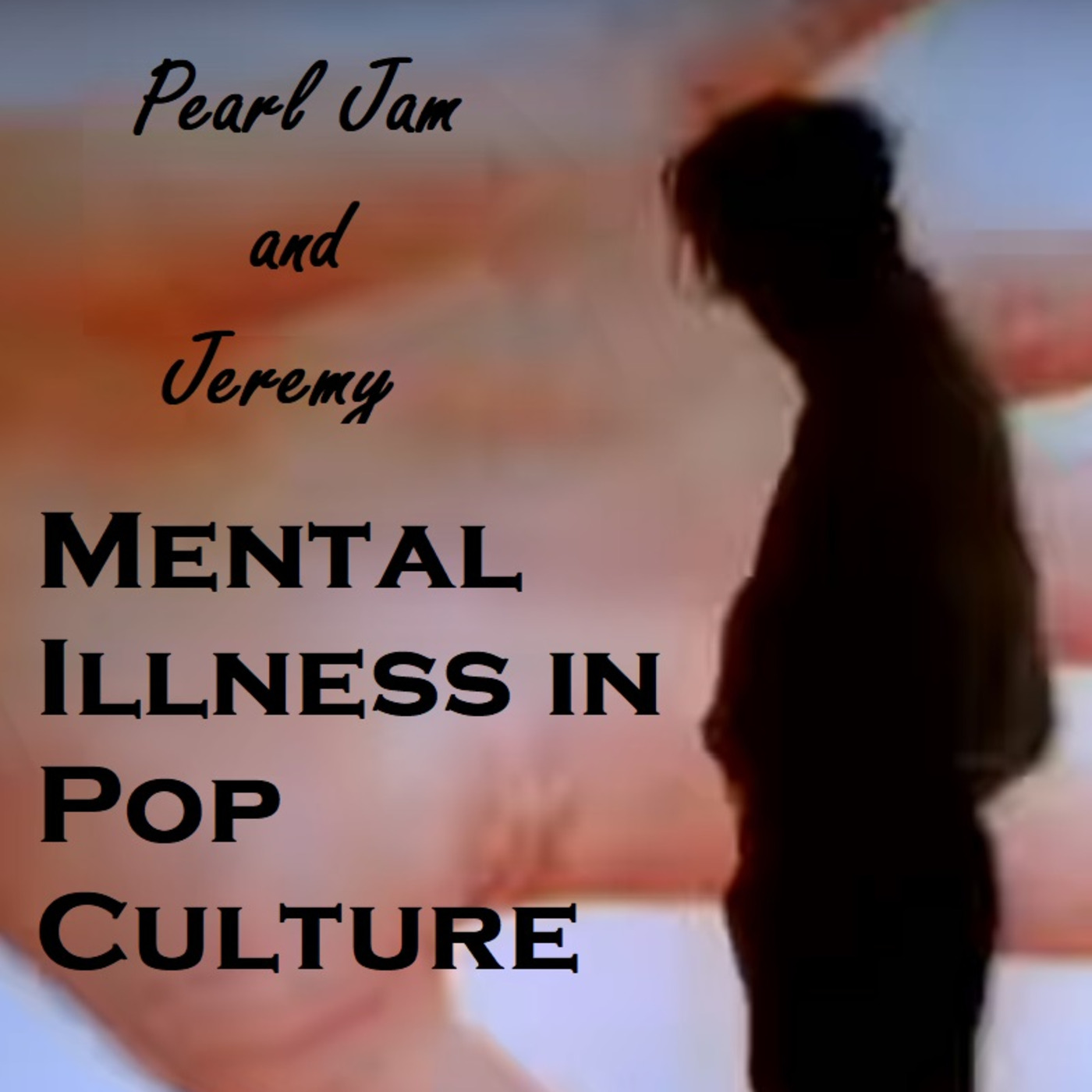 Mental Illness in Pop CulturePearl Jam and Jeremy: Mental Illness in Pop CultureIn this episode of Mental Illness in Pop Culture, guest podcaster Andrew Plath joins us to explore mental health issues related to Pearl Jam and “Jeremy,” a song and video about a boy who finds voice by bringing a gun to school and killing himself. We debate the source of Jeremy’s angst, whether his retaliation was mental or physical, and interpret the song’s often-bleeped “f” word, while speculating singer Eddie Vedder may have drawn on personal issues in his vocal and video performance.
In this podcast series, we focus on pop culture portrayals of mental health issues and professional...2018-07-1559 min
Mental Illness in Pop CulturePearl Jam and Jeremy: Mental Illness in Pop CultureIn this episode of Mental Illness in Pop Culture, guest podcaster Andrew Plath joins us to explore mental health issues related to Pearl Jam and “Jeremy,” a song and video about a boy who finds voice by bringing a gun to school and killing himself. We debate the source of Jeremy’s angst, whether his retaliation was mental or physical, and interpret the song’s often-bleeped “f” word, while speculating singer Eddie Vedder may have drawn on personal issues in his vocal and video performance.
In this podcast series, we focus on pop culture portrayals of mental health issues and professional...2018-07-1559 min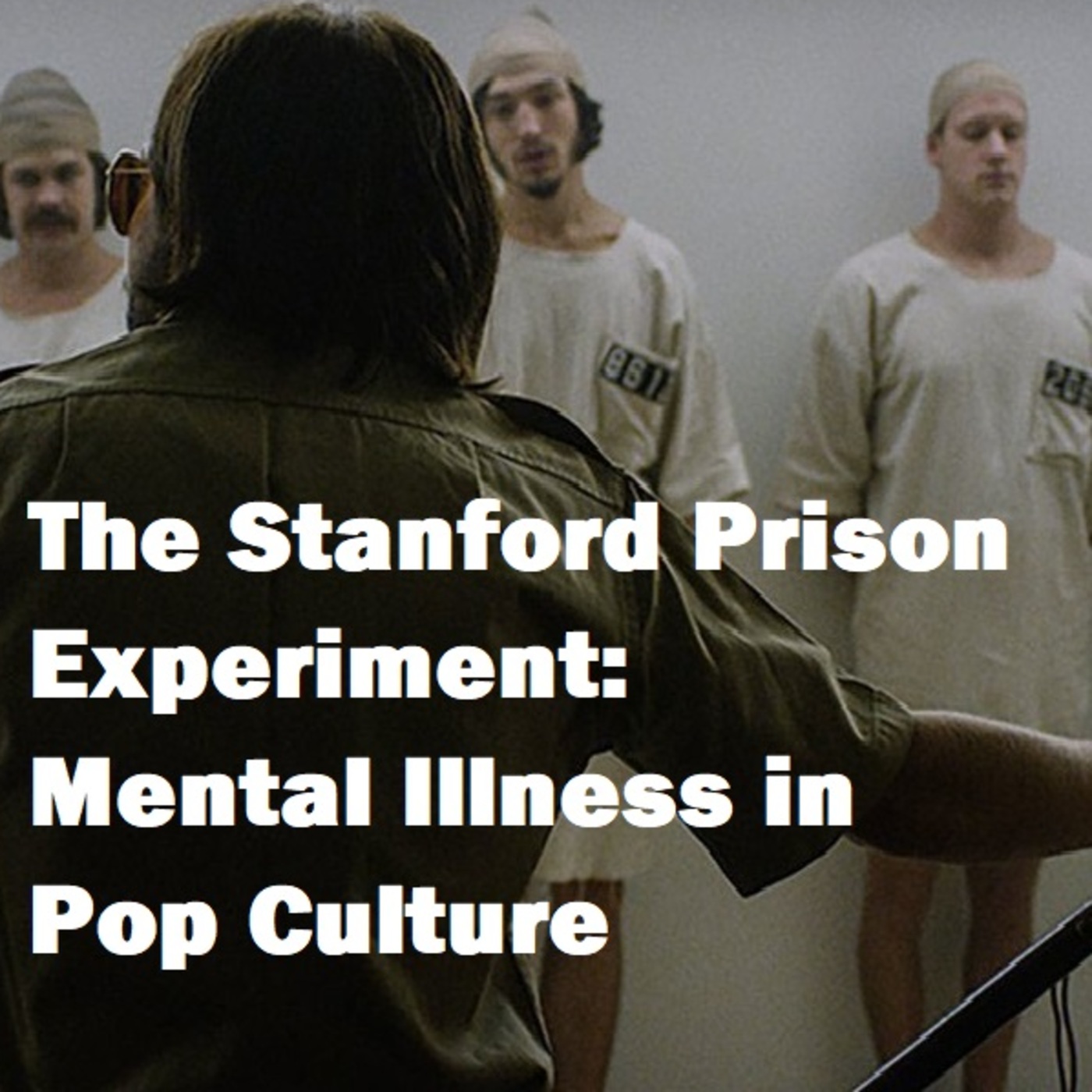 Mental Illness in Pop CultureThe Stanford Prison Experiment: Mental Illness in Pop CultureIn this episode of Mental Illness in Pop Culture, we examine The Stanford Prison Experiment, in film and real life. A coin toss determined whether volunteers would be “guards” or “prisoners” in this controversial research project. We welcome guest-podcaster and doctoral student Andre Joaquim as we explore the relationship of power to imprisonment, gender, groupthink, displacement, conformity, and ethics. We also reflect on professional helper and educator Dr. Phillip Zimbardo’s decision-making while the experiment took place as well as his atonement afterward. We find the film both hard to believe and true to life while remaining uncertain about its implicatio...2017-12-1557 min
Mental Illness in Pop CultureThe Stanford Prison Experiment: Mental Illness in Pop CultureIn this episode of Mental Illness in Pop Culture, we examine The Stanford Prison Experiment, in film and real life. A coin toss determined whether volunteers would be “guards” or “prisoners” in this controversial research project. We welcome guest-podcaster and doctoral student Andre Joaquim as we explore the relationship of power to imprisonment, gender, groupthink, displacement, conformity, and ethics. We also reflect on professional helper and educator Dr. Phillip Zimbardo’s decision-making while the experiment took place as well as his atonement afterward. We find the film both hard to believe and true to life while remaining uncertain about its implicatio...2017-12-1557 min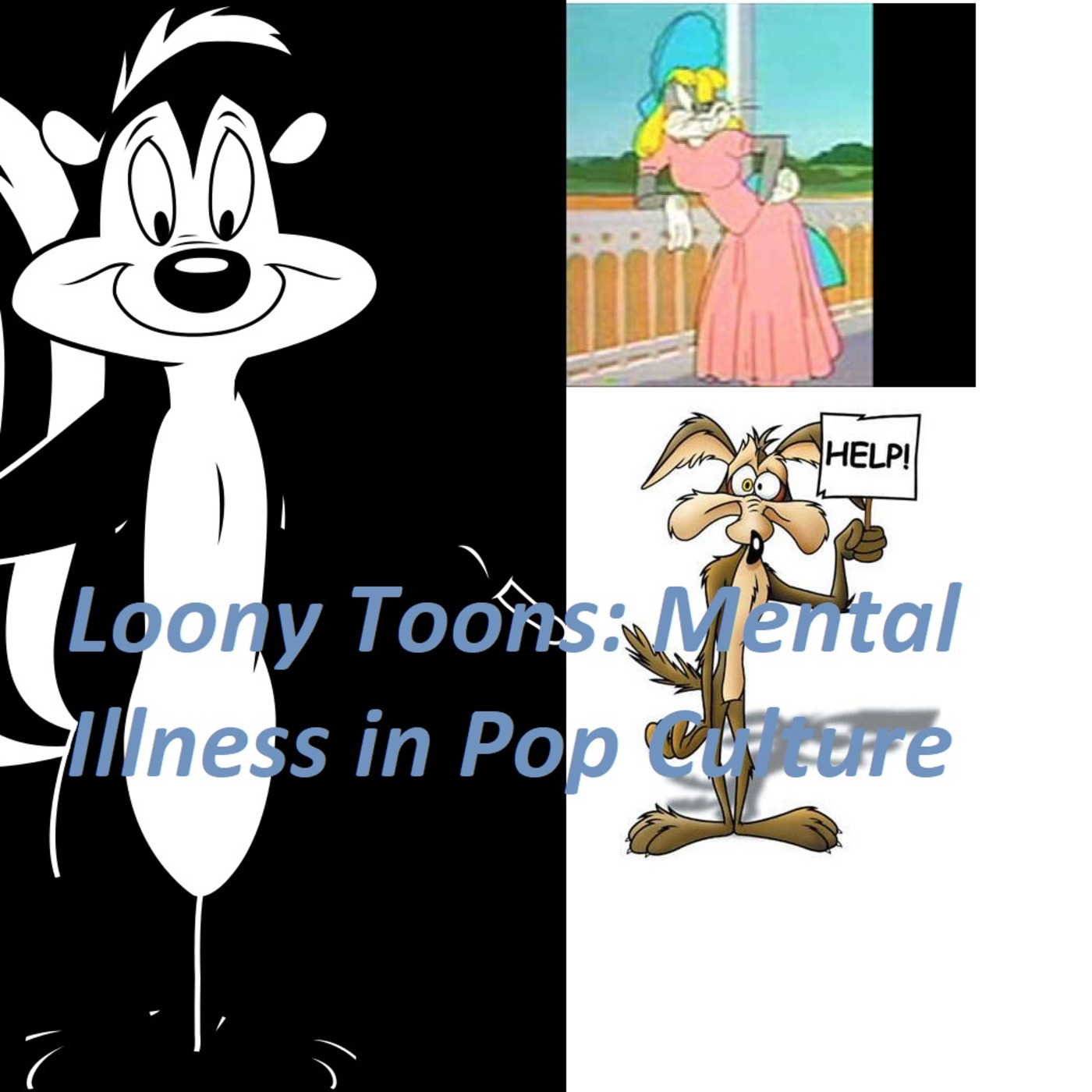 Mental Illness in Pop CultureLoony Toons: Mental Illness in Pop CulturePepe Le Pew, Bugs Bunny, and Wile E. Coyote are among the Loony Toons characters whose mental health issues and identities we dissect in the first episode of Season 3 of Mental Illness in Pop Culture.
Other cartoon characters mentioned: Foghorn Leghorn, Speedy and Slow Poke Gonzalez, Sylvester, Tweety Bird, Elmer Fudd, Yosemite Sam, and Penelope Pussycat.
We also contrast Warner Bros with Disney and briefly analyze Rick and Morty. All of the above are informed by guest host, counselor-in-training, and cartoon aficionado Chris Gonzales.2017-12-091h 14
Mental Illness in Pop CultureLoony Toons: Mental Illness in Pop CulturePepe Le Pew, Bugs Bunny, and Wile E. Coyote are among the Loony Toons characters whose mental health issues and identities we dissect in the first episode of Season 3 of Mental Illness in Pop Culture.
Other cartoon characters mentioned: Foghorn Leghorn, Speedy and Slow Poke Gonzalez, Sylvester, Tweety Bird, Elmer Fudd, Yosemite Sam, and Penelope Pussycat.
We also contrast Warner Bros with Disney and briefly analyze Rick and Morty. All of the above are informed by guest host, counselor-in-training, and cartoon aficionado Chris Gonzales.2017-12-091h 14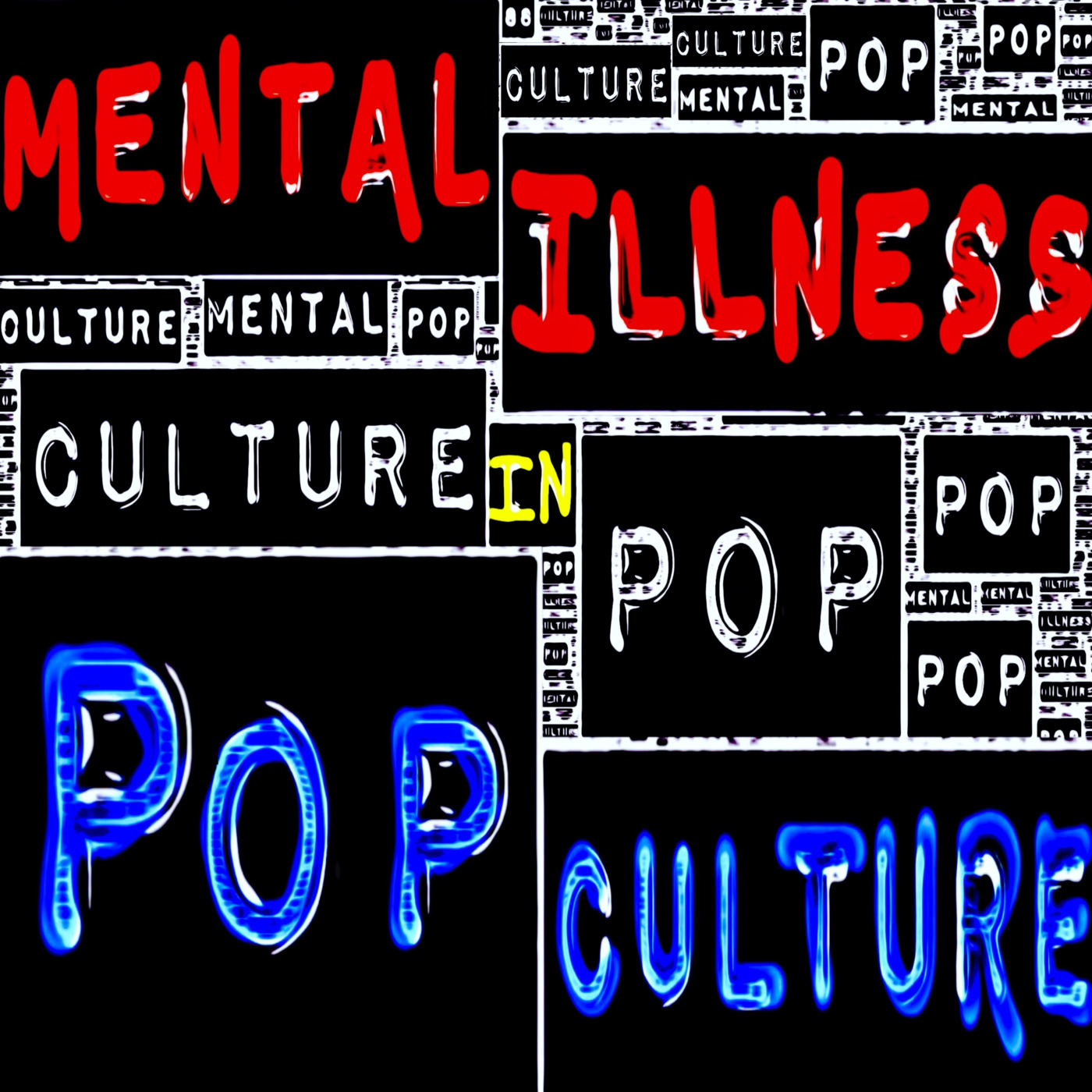 Mental Illness in Pop CultureMental Illness in Pop Culture Season 3 IntroductionWe preview season 3 of Mental Illness in Pop Culture and welcome Dr. Joe Flynn to the podcasting team!2017-12-0612 min
Mental Illness in Pop CultureMental Illness in Pop Culture Season 3 IntroductionWe preview season 3 of Mental Illness in Pop Culture and welcome Dr. Joe Flynn to the podcasting team!2017-12-0612 min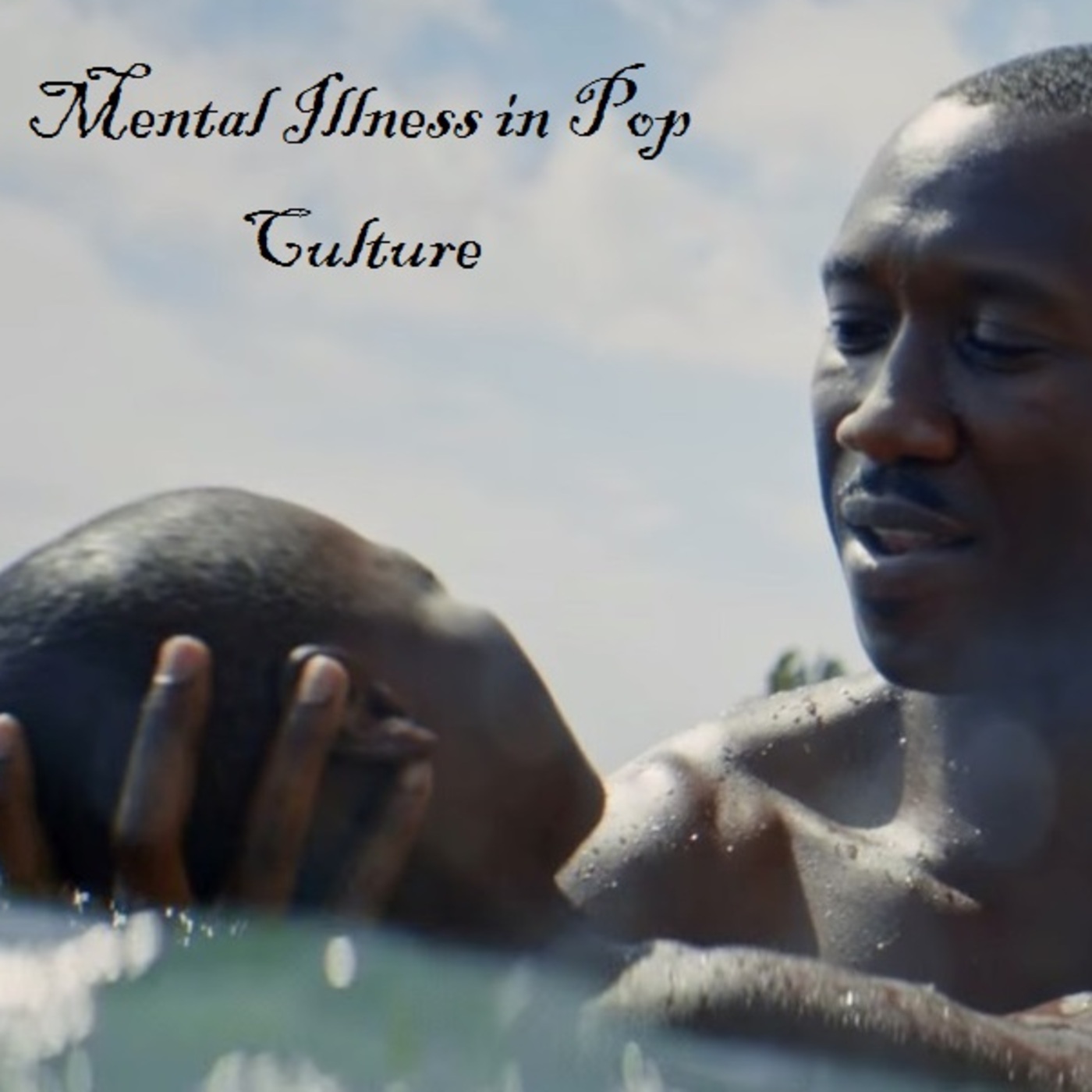 Mental Illness in Pop CultureMoonlight: Mental Illness in Pop Culture2016 Academy Award winning Moonlight intersects race, gender, sexual orientation, socio-economic status, interpersonal violence, and emotional neglect, all swirling around together with the identity development challenge of intimacy vs. isolation. These issues come together in three compelling chapters from the life story of a character known alternately as “Little,” “Chiron,” and “Black,” representing names he was referred to as a child, adolescent, and adult, initially set in Miami during the War on Drugs. The film challenges traditional assumptions about right and wrong as well as who people can trust to get their essential needs met, showing the infused mental health issues that come ab...2017-05-071h 06
Mental Illness in Pop CultureMoonlight: Mental Illness in Pop Culture2016 Academy Award winning Moonlight intersects race, gender, sexual orientation, socio-economic status, interpersonal violence, and emotional neglect, all swirling around together with the identity development challenge of intimacy vs. isolation. These issues come together in three compelling chapters from the life story of a character known alternately as “Little,” “Chiron,” and “Black,” representing names he was referred to as a child, adolescent, and adult, initially set in Miami during the War on Drugs. The film challenges traditional assumptions about right and wrong as well as who people can trust to get their essential needs met, showing the infused mental health issues that come ab...2017-05-071h 06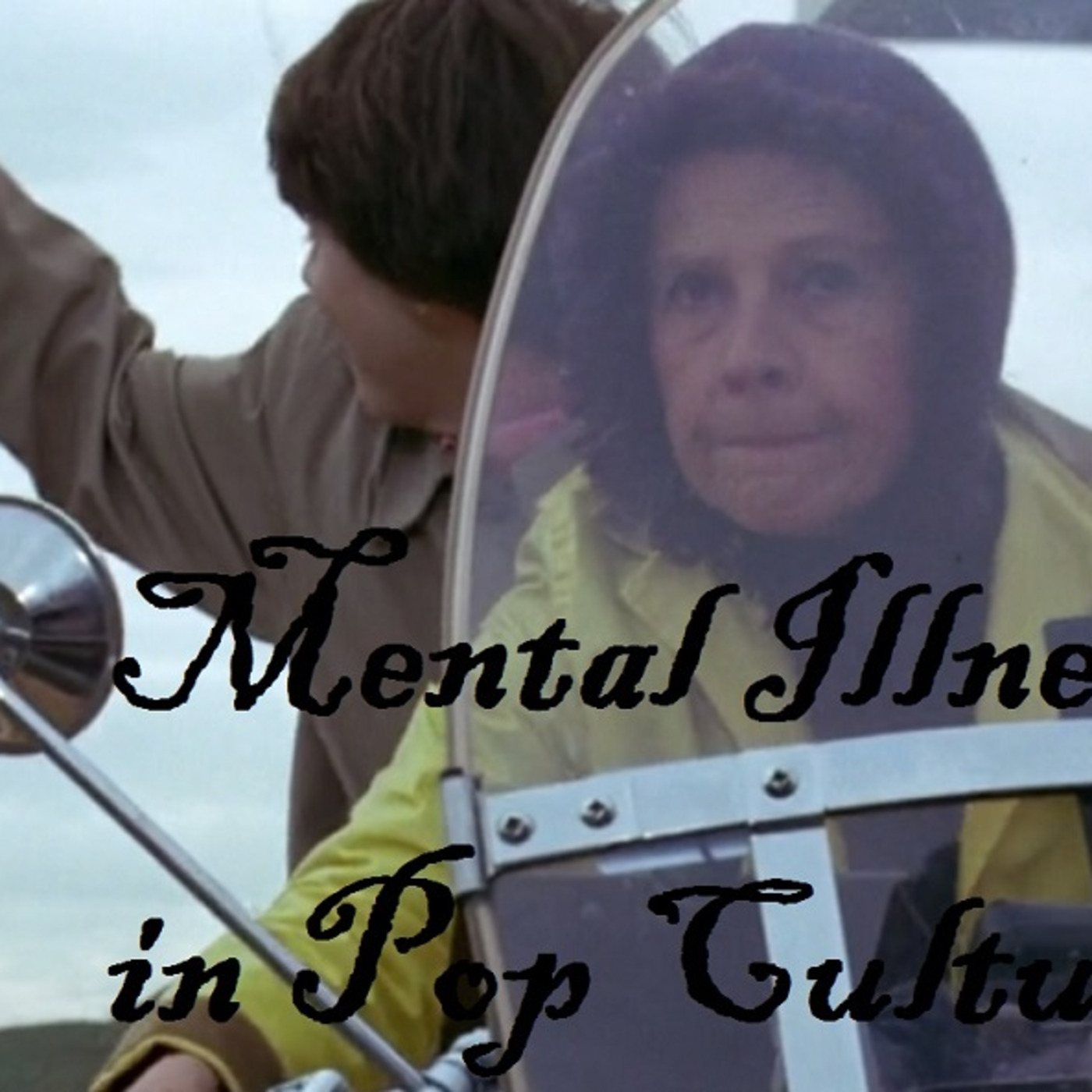 Mental Illness in Pop CultureHarold and Maude: Mental Illness in Pop CultureThe cult classic and dark romantic comedy Harold and Maude puts a humorous yet existential gender spin on the May-December motif, with 20-year-old Harold Chasen (Bud Cort) proposing his love to 79-year-old Dame Marjorie “Maude” Chardin (Ruth Gordon). Filled with attention-seeking attempts at shock and awe, we discover Harold’s avoidant attachment style to have originated from lack thereof with his mother, known only as Mrs. Chasen (Vivian Pickles), who may be well intentioned but doesn’t know what to make of Harold’s morbid fascination with death (Thanophilia) and multiplicity of fake suicide demonstrations. In contrast, Maude represents utter fascinatio...2017-04-291h 24
Mental Illness in Pop CultureHarold and Maude: Mental Illness in Pop CultureThe cult classic and dark romantic comedy Harold and Maude puts a humorous yet existential gender spin on the May-December motif, with 20-year-old Harold Chasen (Bud Cort) proposing his love to 79-year-old Dame Marjorie “Maude” Chardin (Ruth Gordon). Filled with attention-seeking attempts at shock and awe, we discover Harold’s avoidant attachment style to have originated from lack thereof with his mother, known only as Mrs. Chasen (Vivian Pickles), who may be well intentioned but doesn’t know what to make of Harold’s morbid fascination with death (Thanophilia) and multiplicity of fake suicide demonstrations. In contrast, Maude represents utter fascinatio...2017-04-291h 24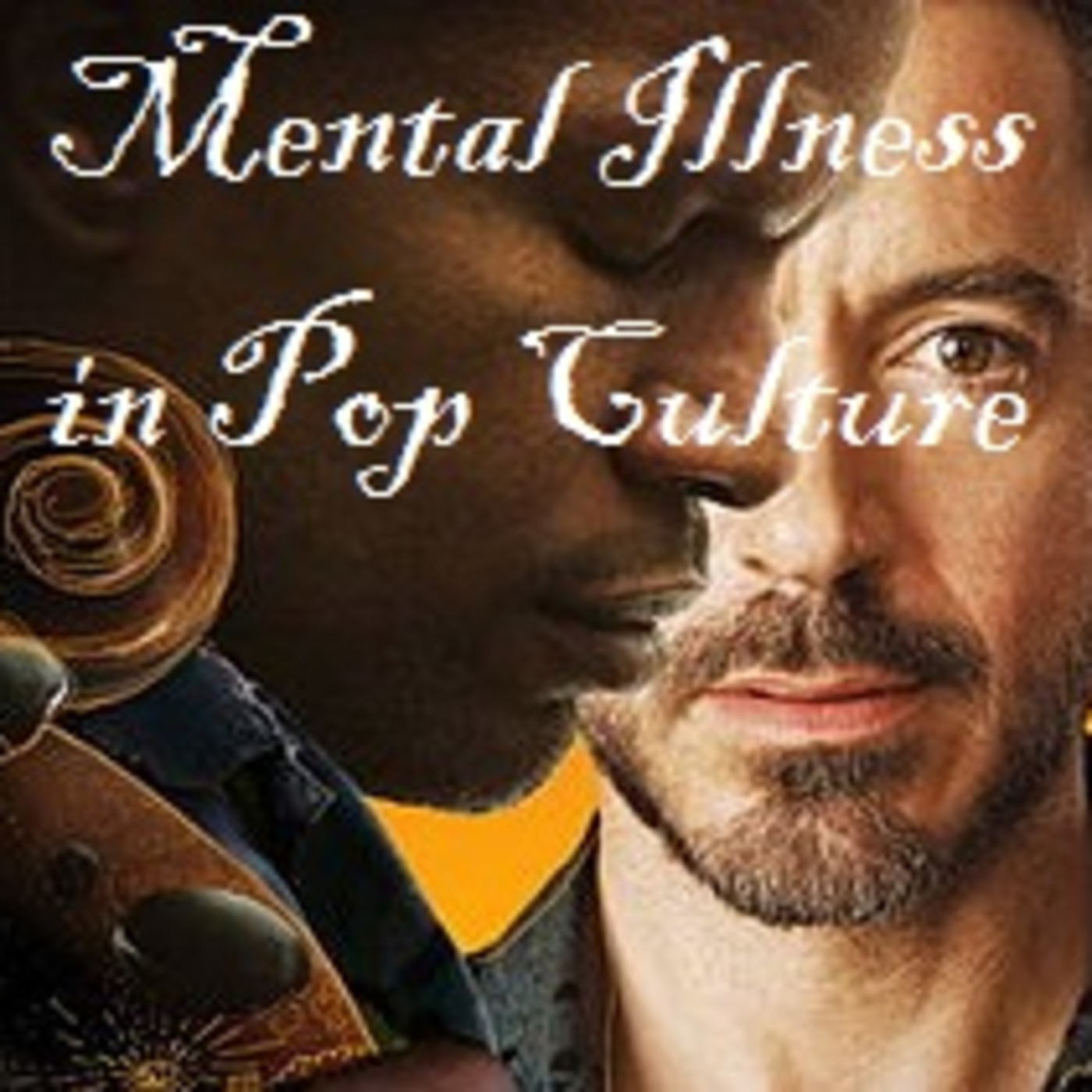 Mental Illness in Pop CultureThe Soloist: Mental Illness in Pop CultureIn this extra-long episode of Mental Illness in Pop Culture, we examine The Soloist, featuring Jamie Foxx as the titled character, Nathaniel Ayers, Jr., a homeless musical prodigy with severe mental illness, and Robert Downey, Jr. as Steve Lopez, the L.A. Times writer whose columns about Ayers formed the film’s basis. We find the film to be an authentic portrayal of mental illness, struggle with whether or not the movie is yet another cinematic example of the White Savior Complex, conclude the portrayal of relationship (or lack of) as the core of mental health consistent William Glasser’s Choi...2017-04-221h 32
Mental Illness in Pop CultureThe Soloist: Mental Illness in Pop CultureIn this extra-long episode of Mental Illness in Pop Culture, we examine The Soloist, featuring Jamie Foxx as the titled character, Nathaniel Ayers, Jr., a homeless musical prodigy with severe mental illness, and Robert Downey, Jr. as Steve Lopez, the L.A. Times writer whose columns about Ayers formed the film’s basis. We find the film to be an authentic portrayal of mental illness, struggle with whether or not the movie is yet another cinematic example of the White Savior Complex, conclude the portrayal of relationship (or lack of) as the core of mental health consistent William Glasser’s Choi...2017-04-221h 32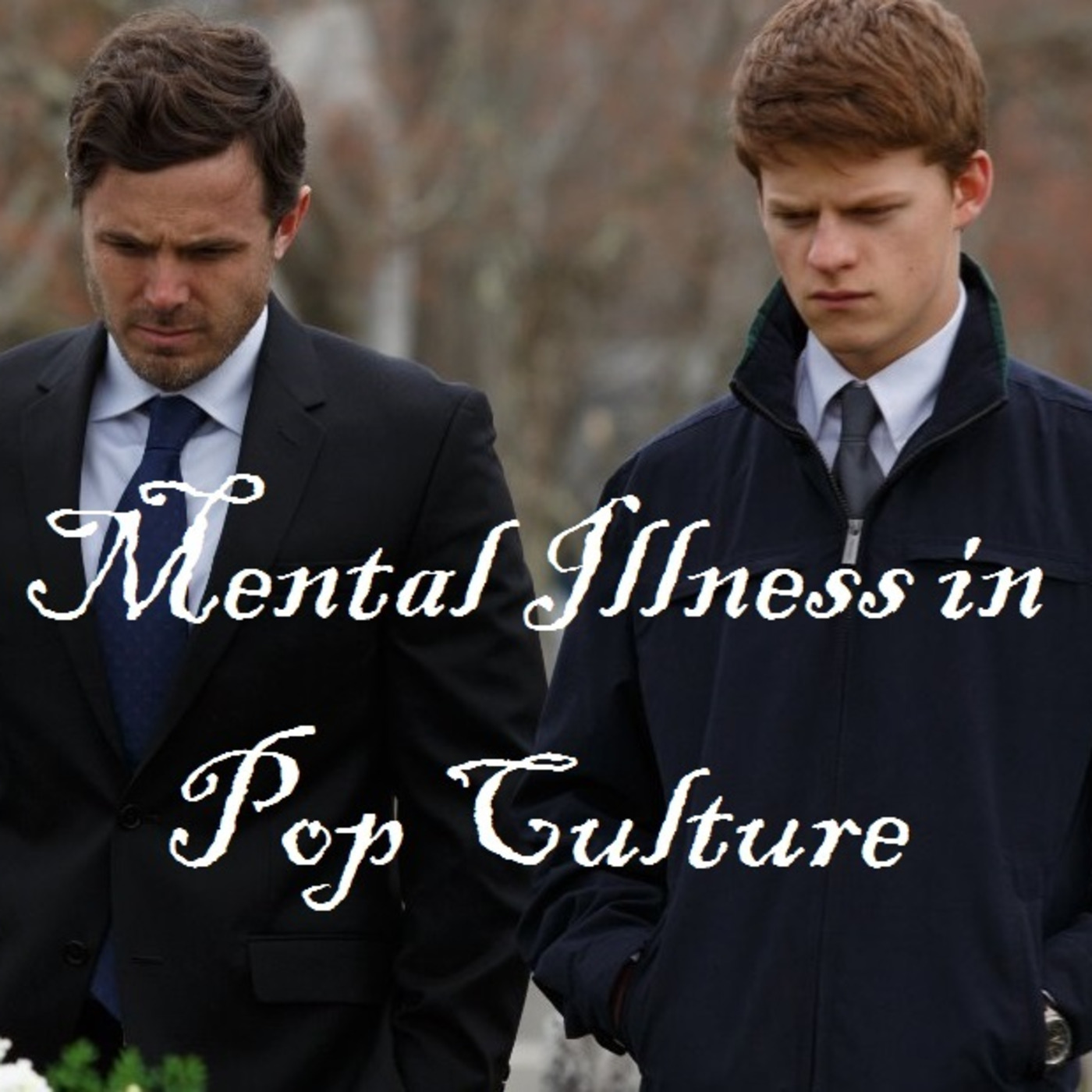 Mental Illness in Pop CultureManchester by the Sea: Mental Illness in Pop CultureIn this episode of Mental Illness in Pop Culture, we explore abandonment, complex grief, depression, pain, New England masculine identity, forgiveness, dysfunctional coping strategies, anhedonia, family trauma, binge drinking, lack of professional helping, and acceptance of personal limitations in the Academy-Award-winning film Manchester by the Sea. We consider the film perhaps one of the saddest movies ever made and a realistic portrayal of the human condition. In the podcast, we acknowledge main character Lee Chandler (Casey Affleck) “doing the best he can” despite many flaws and shortcomings in the aftermath of tragedy. We also applaud the film’s refusal to “tie ever...2017-04-151h 11
Mental Illness in Pop CultureManchester by the Sea: Mental Illness in Pop CultureIn this episode of Mental Illness in Pop Culture, we explore abandonment, complex grief, depression, pain, New England masculine identity, forgiveness, dysfunctional coping strategies, anhedonia, family trauma, binge drinking, lack of professional helping, and acceptance of personal limitations in the Academy-Award-winning film Manchester by the Sea. We consider the film perhaps one of the saddest movies ever made and a realistic portrayal of the human condition. In the podcast, we acknowledge main character Lee Chandler (Casey Affleck) “doing the best he can” despite many flaws and shortcomings in the aftermath of tragedy. We also applaud the film’s refusal to “tie ever...2017-04-151h 11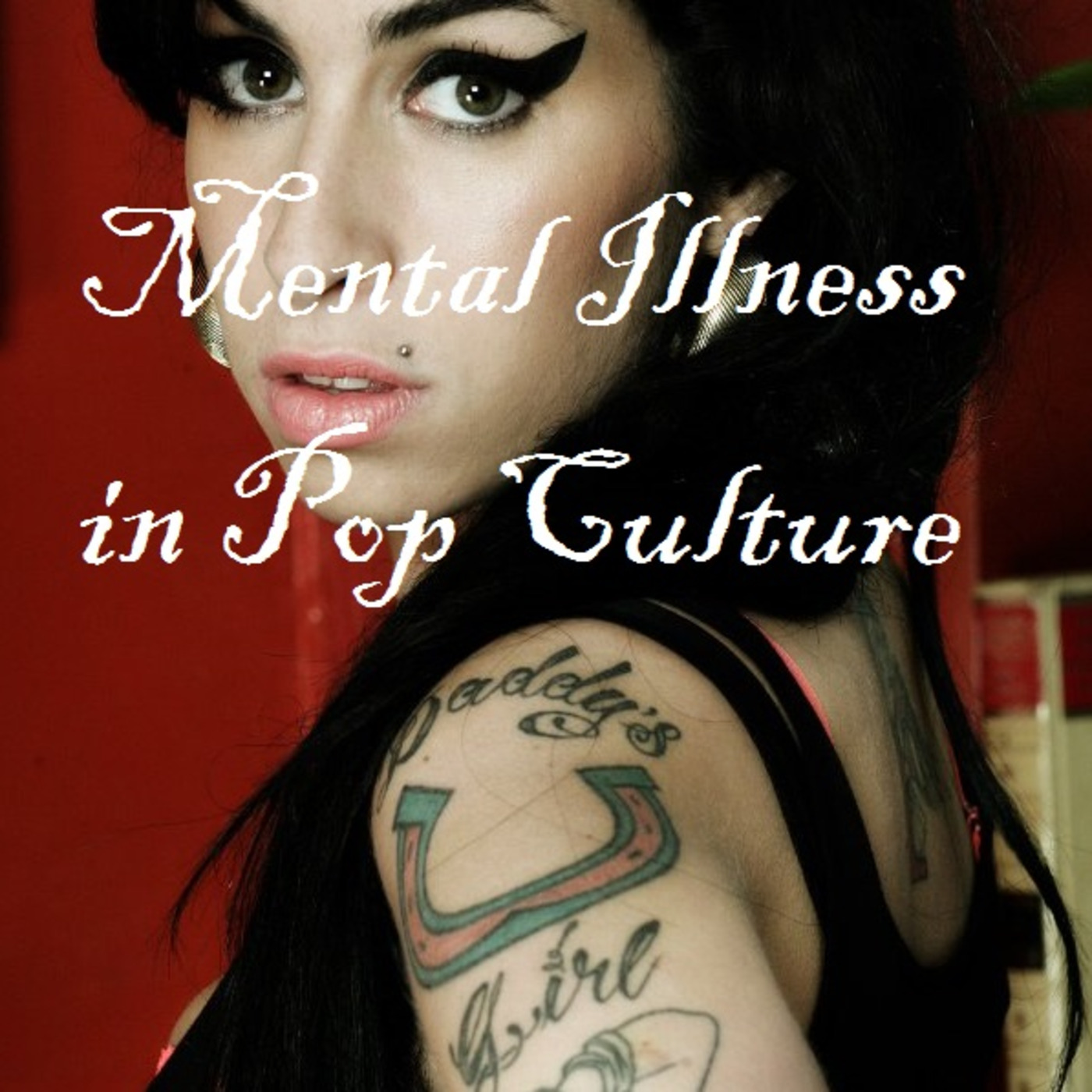 Mental Illness in Pop CultureAmy: Mental Illness in Pop CultureWe examine a variety of mental health issues, seeming contradictions, and tragic beauty in Amy, the 2015 Academy-Award-winning documentary about vocalist, musician, and songwriter Amy Winehouse, who became known as much for her "gobby" lifestyle/self-presentation, search for love, and exploitation by significant others in all domains of her life as for her music. Winehouse’s songs captured her powerful story, culminating in the refrain and lyrics of her mega-hit: “They tried to make me go to rehab; I said ‘No! No! No!’ . . . My daddy says I’m fine. . . . I don’t ever wanna drink again; I just, ooh, I just need a friend...2017-04-0854 min
Mental Illness in Pop CultureAmy: Mental Illness in Pop CultureWe examine a variety of mental health issues, seeming contradictions, and tragic beauty in Amy, the 2015 Academy-Award-winning documentary about vocalist, musician, and songwriter Amy Winehouse, who became known as much for her "gobby" lifestyle/self-presentation, search for love, and exploitation by significant others in all domains of her life as for her music. Winehouse’s songs captured her powerful story, culminating in the refrain and lyrics of her mega-hit: “They tried to make me go to rehab; I said ‘No! No! No!’ . . . My daddy says I’m fine. . . . I don’t ever wanna drink again; I just, ooh, I just need a friend...2017-04-0854 min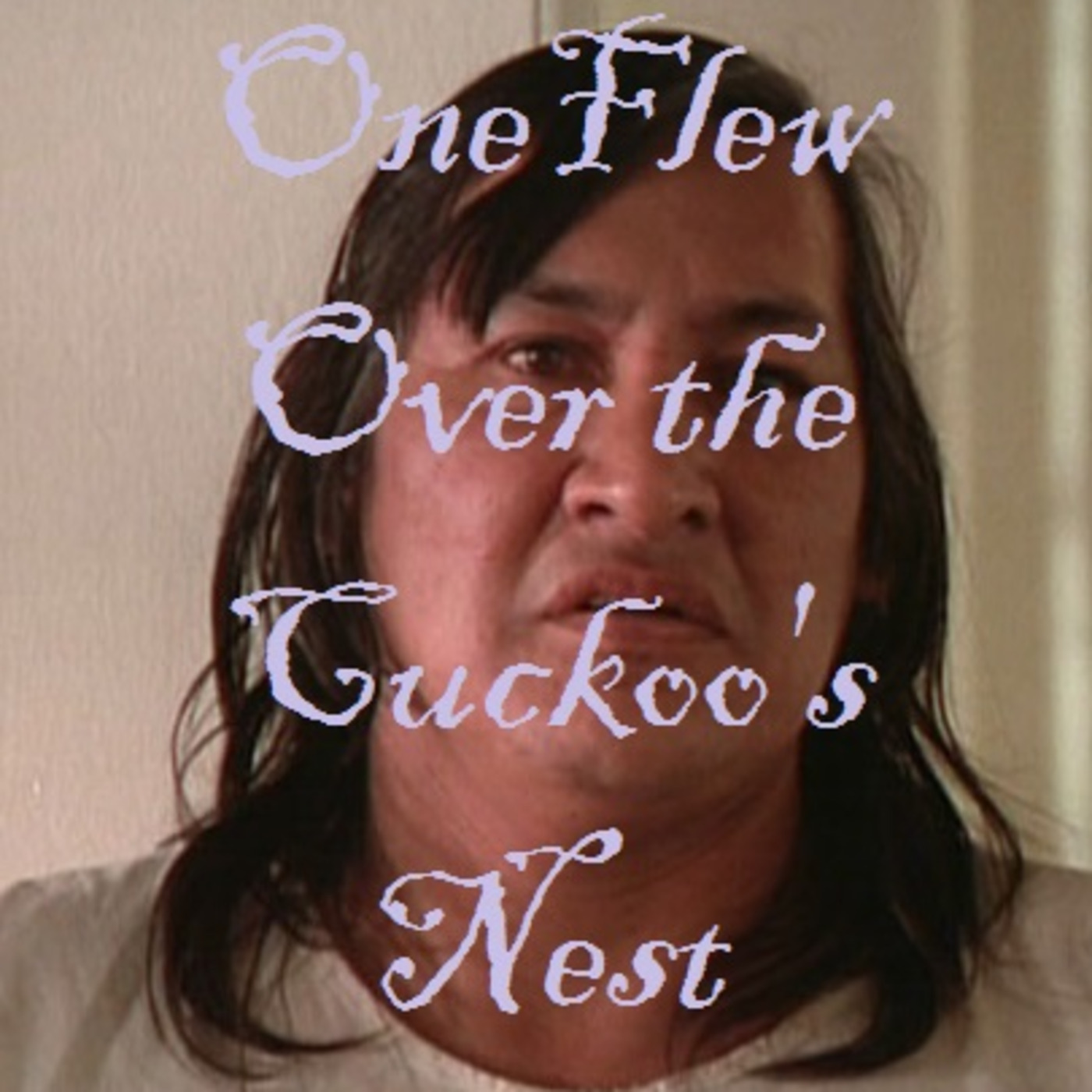 Mental Illness in Pop CultureOne Flew Over the Cuckoo's Nest: Mental Illness in Pop CultureWe explore themes of freedom/oppression, empowerment, and escape as well as rampant religious symbolism within this Academy-Award-sweeping film that still holds up 40+ years later. Randall Patrick "Mac" MacMurphy (Jack Nicholson) bluffs his way into a mental institution to avoid hard labor and prison time despite his skeezy conning and conniving ways. However, during the time Mac spends as an informal helper among the hospital's patients and seemingly in contrast to professional helper Nurse Rached, Mac comes to have compassion, empathy, and a servant-leadership style that seems to facilitate transformational growth and development for all other patients, including his making...2017-04-0157 min
Mental Illness in Pop CultureOne Flew Over the Cuckoo's Nest: Mental Illness in Pop CultureWe explore themes of freedom/oppression, empowerment, and escape as well as rampant religious symbolism within this Academy-Award-sweeping film that still holds up 40+ years later. Randall Patrick "Mac" MacMurphy (Jack Nicholson) bluffs his way into a mental institution to avoid hard labor and prison time despite his skeezy conning and conniving ways. However, during the time Mac spends as an informal helper among the hospital's patients and seemingly in contrast to professional helper Nurse Rached, Mac comes to have compassion, empathy, and a servant-leadership style that seems to facilitate transformational growth and development for all other patients, including his making...2017-04-0157 min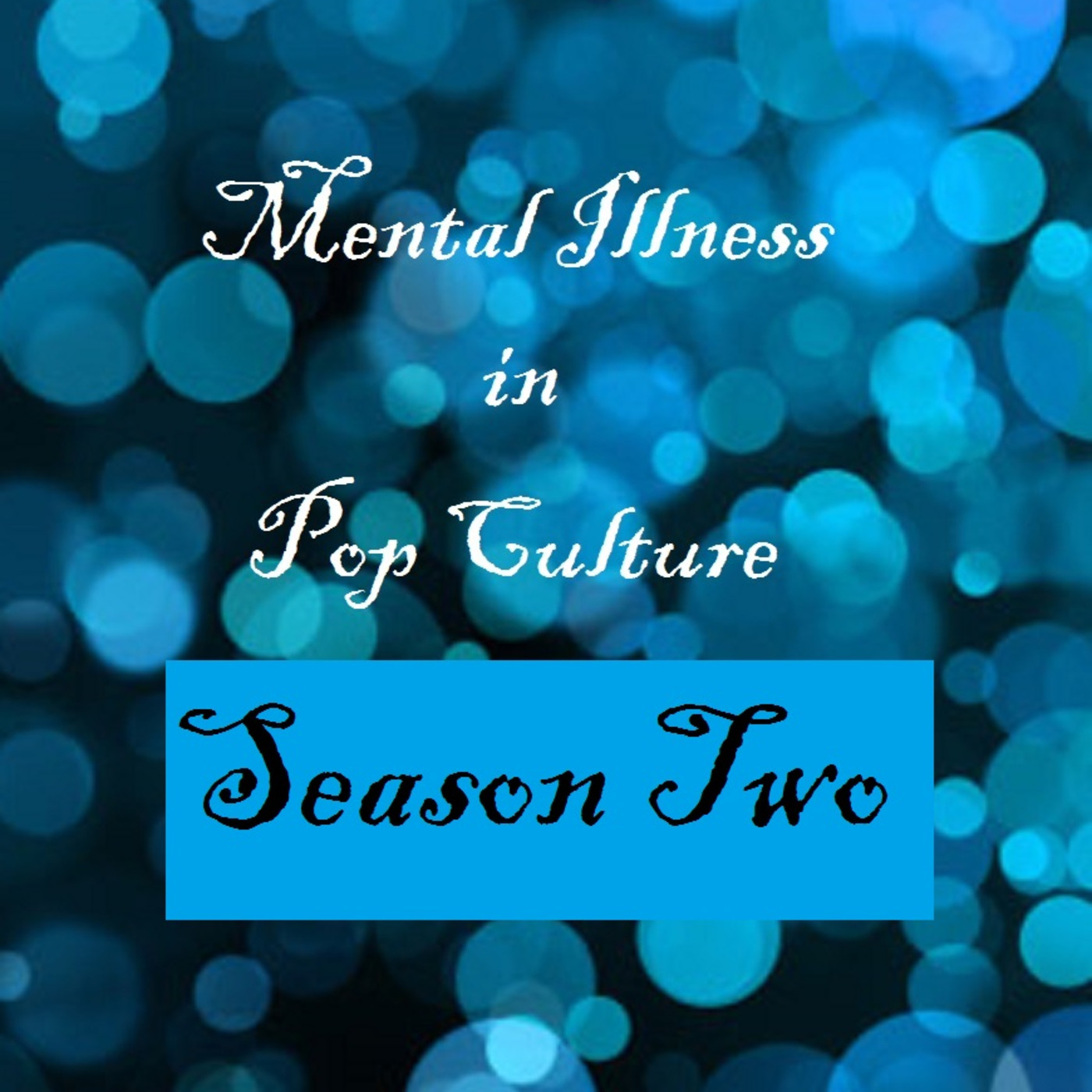 Mental Illness in Pop CultureSeason 2 Introduction: Mental Illness in Pop CultureIn this introductory episode to our second season of Mental Illness in Pop Culture, we introduce ourselves (including new team members Broc and Leanne), talk about our interest/experience with mental health issues and professional helping, and plan for upcoming episodes!2017-04-0118 min
Mental Illness in Pop CultureSeason 2 Introduction: Mental Illness in Pop CultureIn this introductory episode to our second season of Mental Illness in Pop Culture, we introduce ourselves (including new team members Broc and Leanne), talk about our interest/experience with mental health issues and professional helping, and plan for upcoming episodes!2017-04-0118 min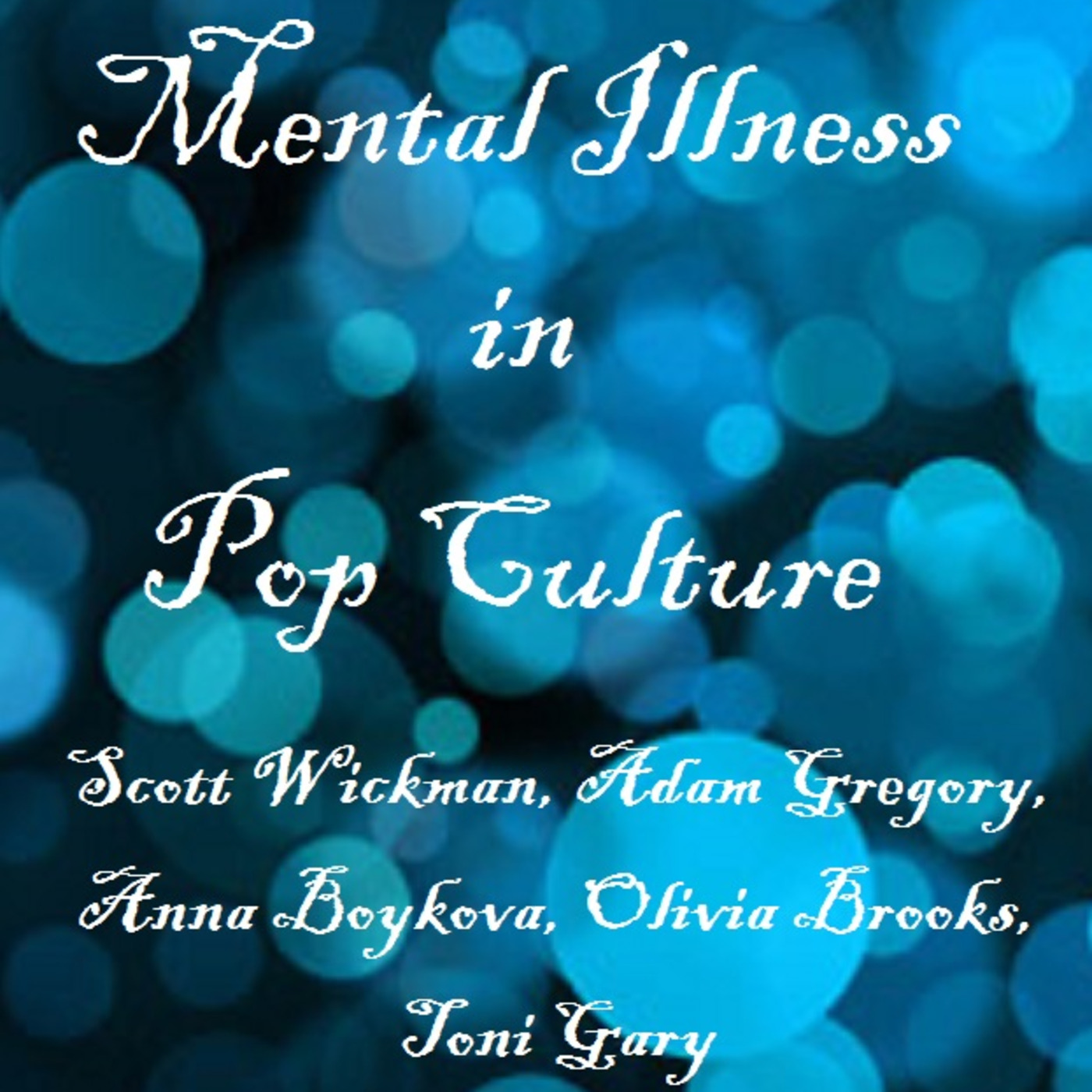 Mental Illness in Pop CultureProcessing the Podcast: Mental Illness in Pop CultureIn this episode, Adam, Anna, Olivia, Toni, and Scott summarize what they've learned through the first season of Mental Illness in Pop Culture, going meta- on film and episode highlights, the collaborative process of working together, and podcasting itself, all based on the idea that popular media reflect and influence cultural perceptions of mental health issues and professional helping.2016-12-1747 min
Mental Illness in Pop CultureProcessing the Podcast: Mental Illness in Pop CultureIn this episode, Adam, Anna, Olivia, Toni, and Scott summarize what they've learned through the first season of Mental Illness in Pop Culture, going meta- on film and episode highlights, the collaborative process of working together, and podcasting itself, all based on the idea that popular media reflect and influence cultural perceptions of mental health issues and professional helping.2016-12-1747 min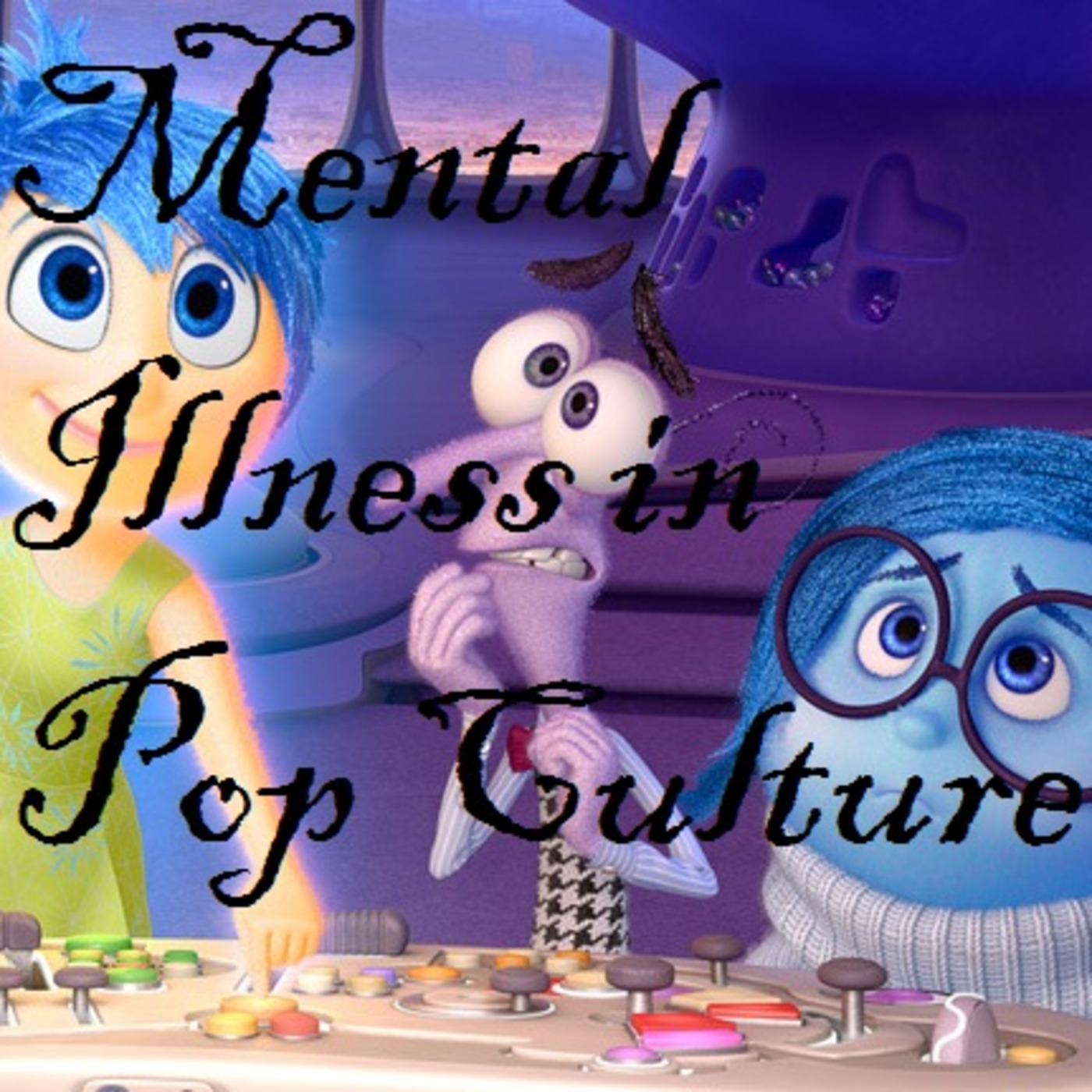 Mental Illness in Pop CultureInside Out: Mental Illness in Pop Culture"Do you ever look at someone and wonder, 'What is going on inside their head?'" In this episode of Mental Illness in Pop Culture, we take an "Inside Out" look at Joy, Sadness, Anger, Fear, and Disgust as they shape core memories and personality development for 11-year-old Riley in this Disney/Pixar film. In this podcast series, we focus on pop culture portrayals of mental health issues and professional helping, believing that media both reflect and influence popular perception.2016-12-0757 min
Mental Illness in Pop CultureInside Out: Mental Illness in Pop Culture"Do you ever look at someone and wonder, 'What is going on inside their head?'" In this episode of Mental Illness in Pop Culture, we take an "Inside Out" look at Joy, Sadness, Anger, Fear, and Disgust as they shape core memories and personality development for 11-year-old Riley in this Disney/Pixar film. In this podcast series, we focus on pop culture portrayals of mental health issues and professional helping, believing that media both reflect and influence popular perception.2016-12-0757 min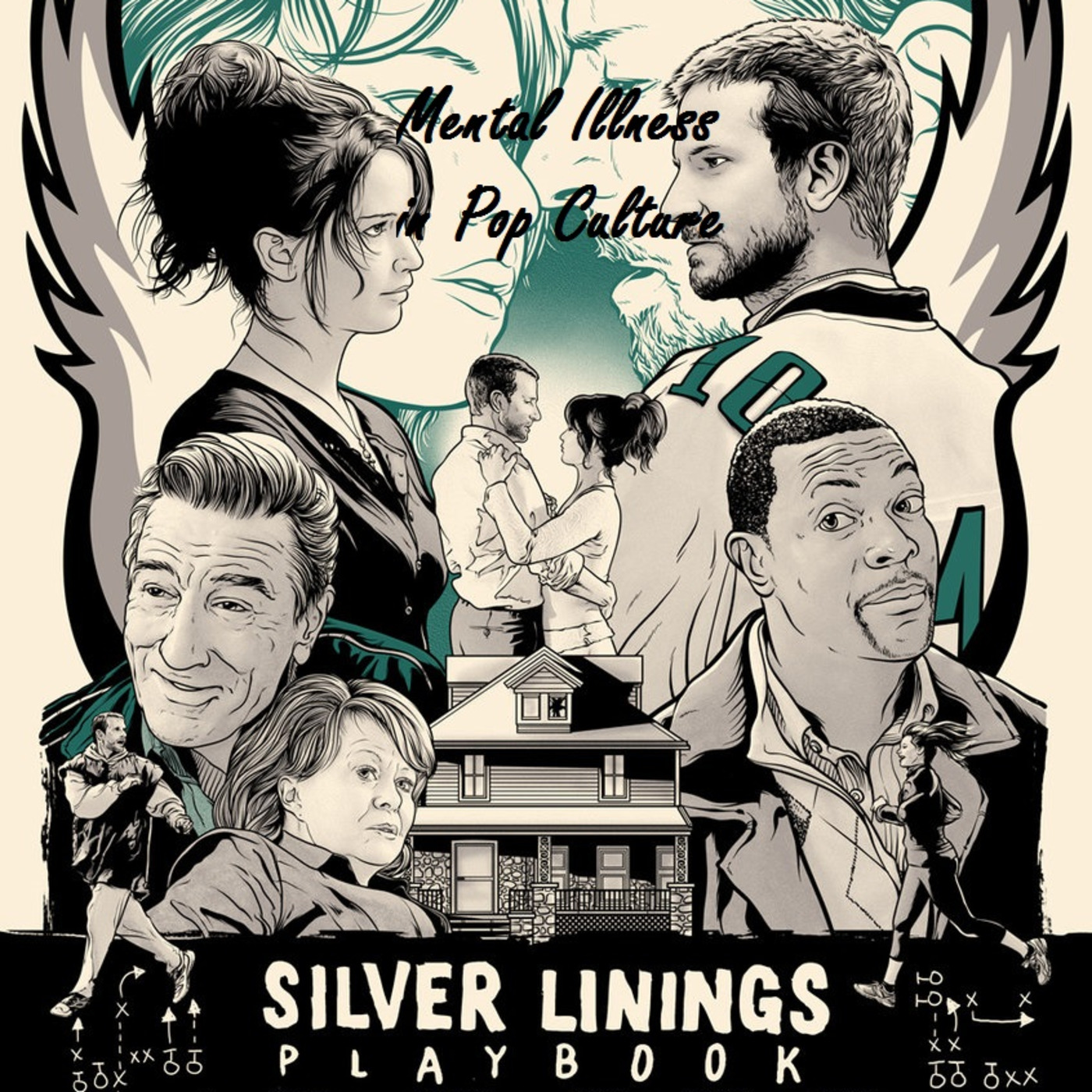 Mental Illness in Pop CultureSilver Linings Playbook: Mental Illness in Pop CultureIn this series, we focus on pop culture portrayals of mental health issues and professional helping, believing that media both reflect and influence popular perception. In this episode, we focus on mental health issues experienced by various characters in Silver Linings Playbook, most notably main character Pat, his dance partner Tiffany, and his dad. We also spend time reflecting on Pat’s relationship with and the therapeutic style of psychiatrist Dr. Patel as well as ethical issues related to their interactions. As the film begins, Pat has recently spent time in a mental care facility, is re-acclimating to family life, an...2016-11-291h 23
Mental Illness in Pop CultureSilver Linings Playbook: Mental Illness in Pop CultureIn this series, we focus on pop culture portrayals of mental health issues and professional helping, believing that media both reflect and influence popular perception. In this episode, we focus on mental health issues experienced by various characters in Silver Linings Playbook, most notably main character Pat, his dance partner Tiffany, and his dad. We also spend time reflecting on Pat’s relationship with and the therapeutic style of psychiatrist Dr. Patel as well as ethical issues related to their interactions. As the film begins, Pat has recently spent time in a mental care facility, is re-acclimating to family life, an...2016-11-291h 23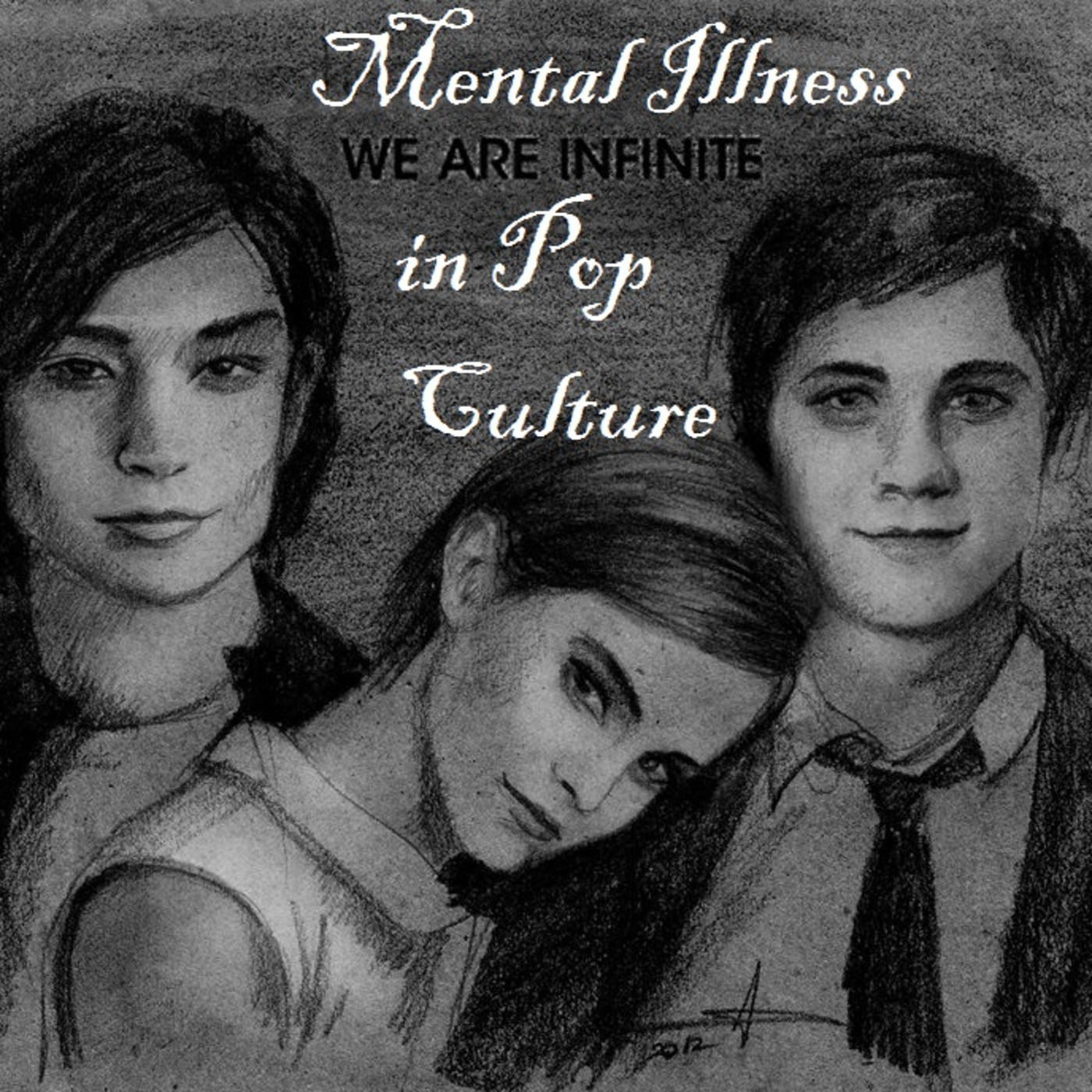 Mental Illness in Pop CultureThe Perks of Being a Wallflower: Mental Illness in Pop CultureIn this series, we focus on pop culture portrayals of mental health issues and professional helping, believing that media both reflect and influence popular perception. In this episode, we focus on mental health issues experienced by various characters in The Perks of Being a Wallflower, most notably but not limited to main character Charlie. As the film begins, Charlie has recently spent time in a mental care facility, is re-acclimating to family life, and has just begun high school. Charlie befriends a group of seniors who are a self-described “Island of Misfit Toys,” each with their own issues and quirks. As C...2016-11-211h 11
Mental Illness in Pop CultureThe Perks of Being a Wallflower: Mental Illness in Pop CultureIn this series, we focus on pop culture portrayals of mental health issues and professional helping, believing that media both reflect and influence popular perception. In this episode, we focus on mental health issues experienced by various characters in The Perks of Being a Wallflower, most notably but not limited to main character Charlie. As the film begins, Charlie has recently spent time in a mental care facility, is re-acclimating to family life, and has just begun high school. Charlie befriends a group of seniors who are a self-described “Island of Misfit Toys,” each with their own issues and quirks. As C...2016-11-211h 11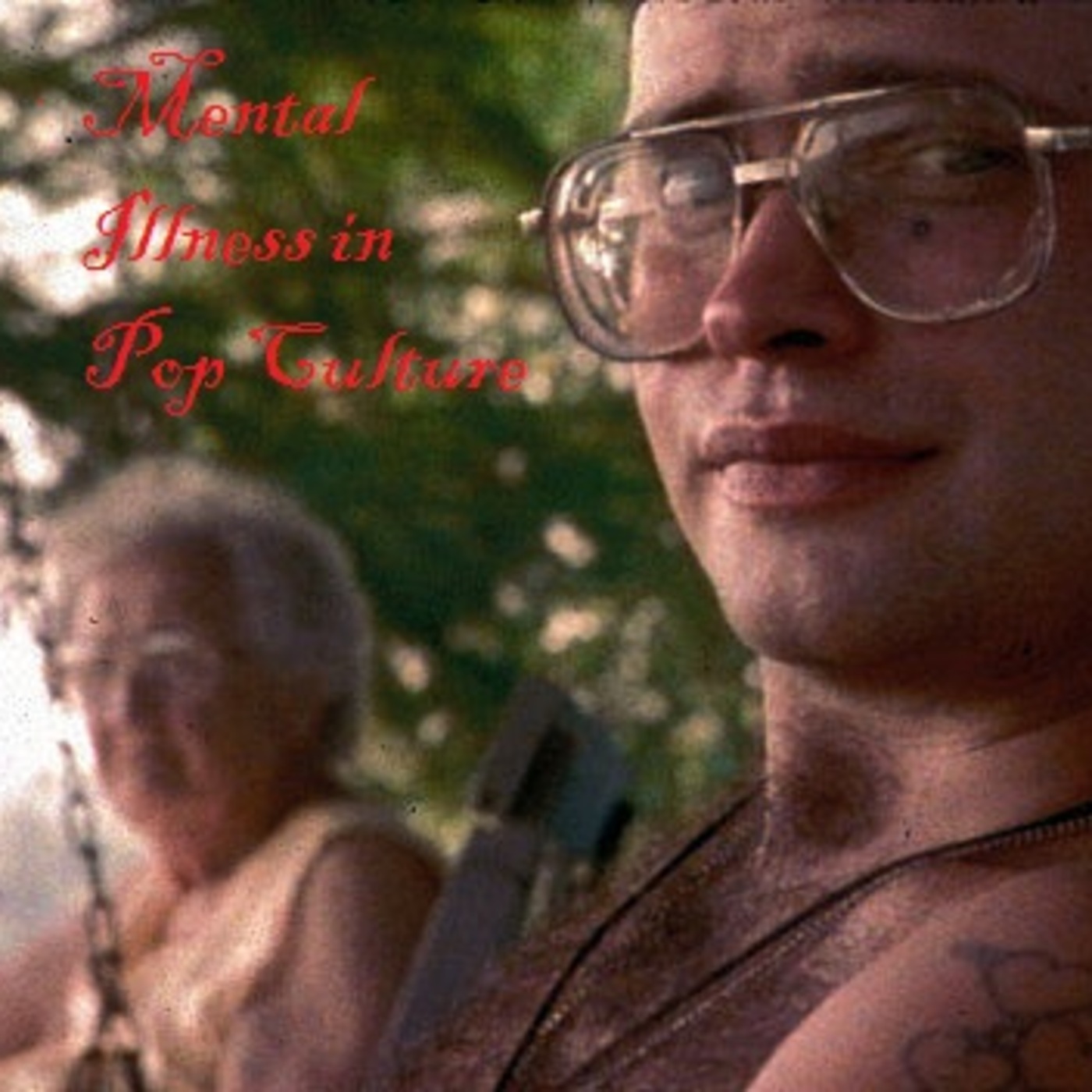 Mental Illness in Pop CultureStevie: Mental Illness in Pop CultureIn this series, we focus on pop culture portrayals of mental health issues and professional helping, believing that media both reflect and influence popular perception. This episode centers around Stevie, who when growing up participated in the Big Brothers / Big Sisters program with documentarian Steve James. The documentary focuses on Stevie's renewed adult relationship with Steve James as well as Stevie's relationship with family members, friends, and girlfriend. Throughout the film, as Stevie and his support circle await his consequences for being charged with a sexual offense, we see juxtapositions of Stevie's backstory intertwined with his current relationships and lifestyle...2016-11-151h 11
Mental Illness in Pop CultureStevie: Mental Illness in Pop CultureIn this series, we focus on pop culture portrayals of mental health issues and professional helping, believing that media both reflect and influence popular perception. This episode centers around Stevie, who when growing up participated in the Big Brothers / Big Sisters program with documentarian Steve James. The documentary focuses on Stevie's renewed adult relationship with Steve James as well as Stevie's relationship with family members, friends, and girlfriend. Throughout the film, as Stevie and his support circle await his consequences for being charged with a sexual offense, we see juxtapositions of Stevie's backstory intertwined with his current relationships and lifestyle...2016-11-151h 11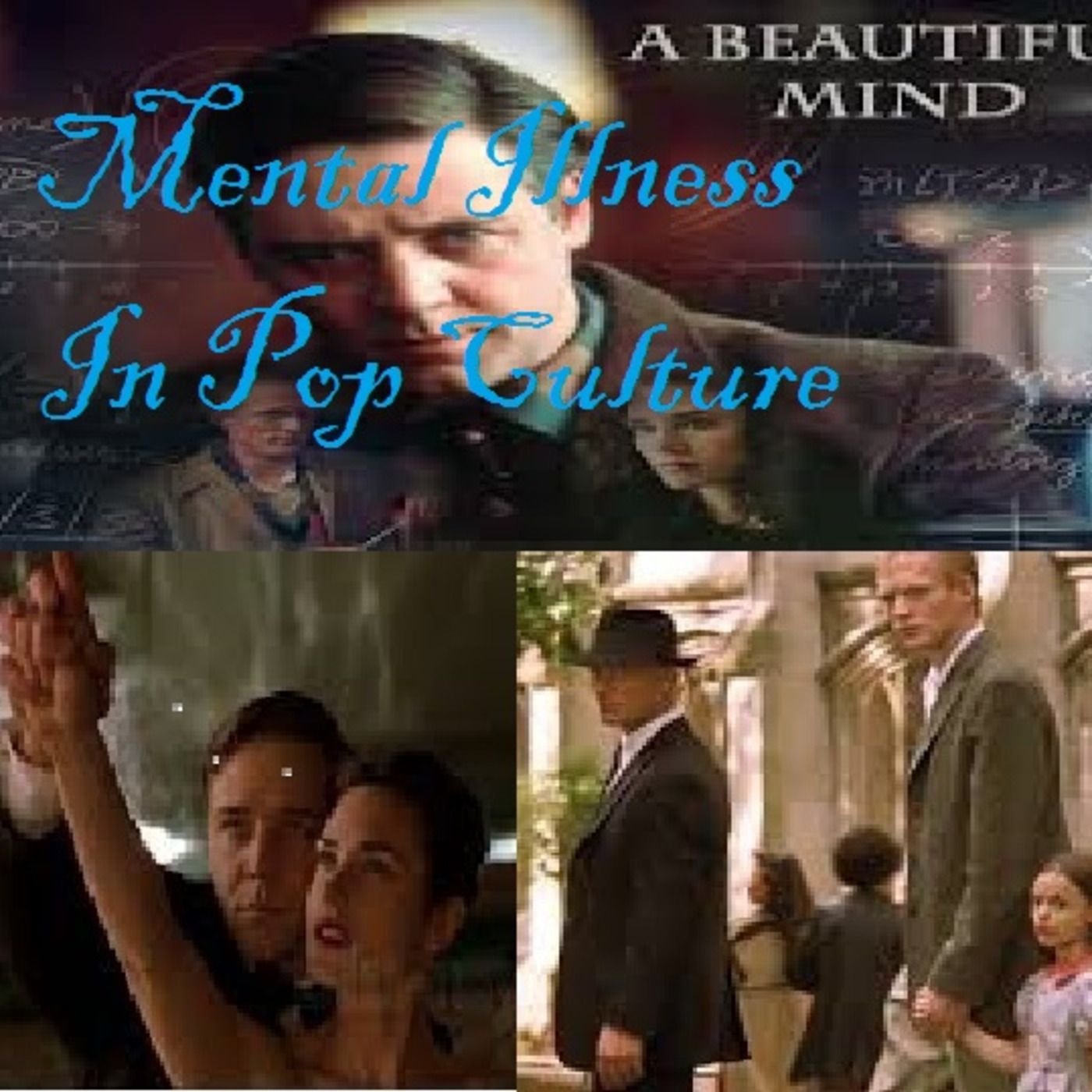 Mental Illness in Pop CultureA Beautiful Mind: Mental Illness in Pop CultureIn this series, we focus on pop culture portrayals of mental health issues and professional helping, believing that media both reflect and influence popular perception. In this episode, we discuss the portrayal of genius, creativity, social awkwardness, paranoid schizophrenia diagnosis, and medication side-effects for Nobel Prize winning mathematician and Game Theory contributor John F. Nash, as depicted in the biographical drama A Beautiful Mind>, based on the biography of the same name by Sylvia Nasar. We also discuss Nash's relationship with his wife and primary caretaker, Alicia, and how she was affected by her husband's mental health issues and taking...2016-11-081h 10
Mental Illness in Pop CultureA Beautiful Mind: Mental Illness in Pop CultureIn this series, we focus on pop culture portrayals of mental health issues and professional helping, believing that media both reflect and influence popular perception. In this episode, we discuss the portrayal of genius, creativity, social awkwardness, paranoid schizophrenia diagnosis, and medication side-effects for Nobel Prize winning mathematician and Game Theory contributor John F. Nash, as depicted in the biographical drama A Beautiful Mind>, based on the biography of the same name by Sylvia Nasar. We also discuss Nash's relationship with his wife and primary caretaker, Alicia, and how she was affected by her husband's mental health issues and taking...2016-11-081h 10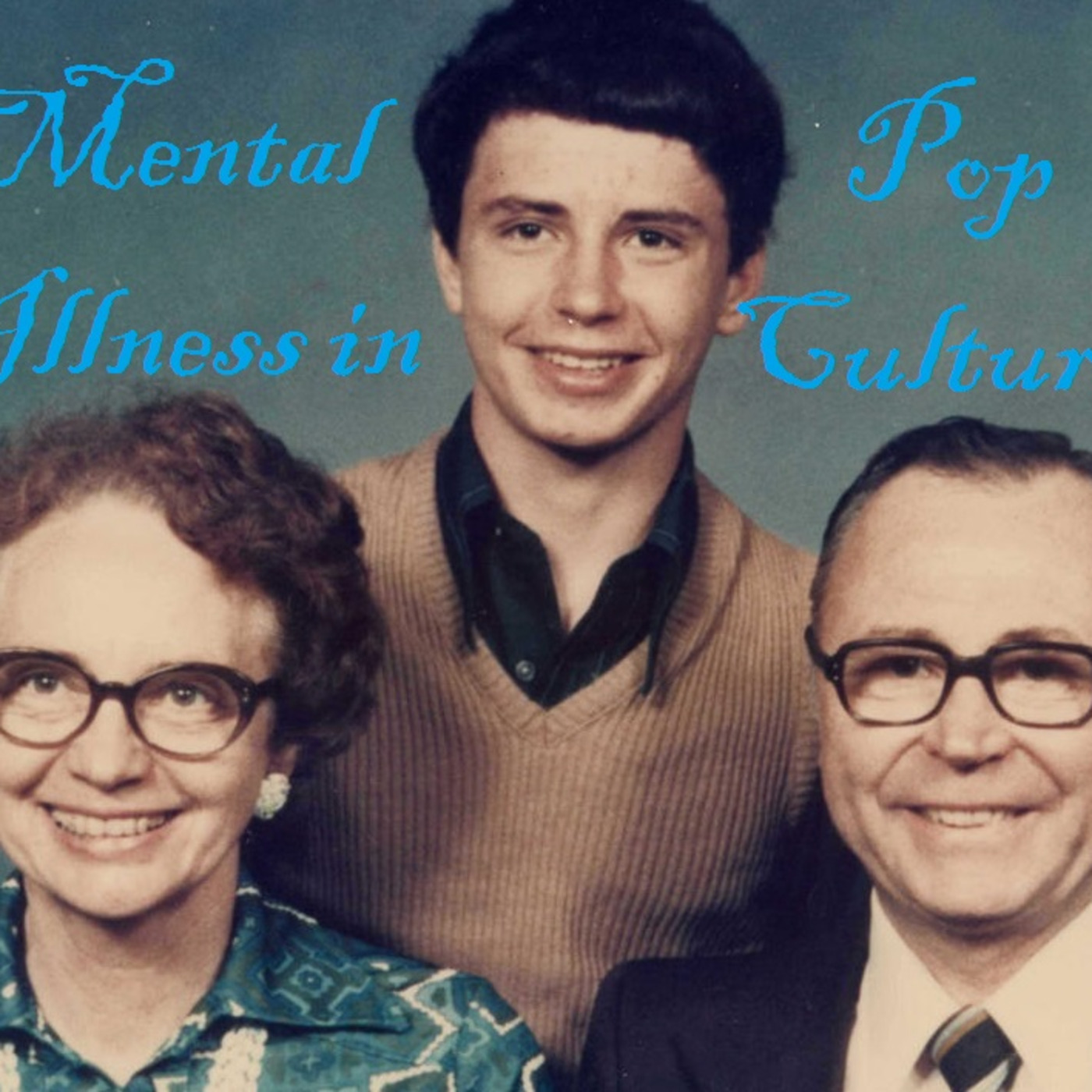 Mental Illness in Pop CultureThe Devil and Daniel Johnston: Mental Illness in Pop CultureIn this series, we focus on pop culture portrayals of mental health issues and professional helping, believing that media both reflect and influence popular perception. In this episode, we focus on the intersection of genius, creativity, and mental health issues for outsider artist and musician Daniel Johnston. We also focus on his interaction with and impact on caretakers -- family, friends, and others' involved with his musical career -- as well as the litany of established musical acts influenced by Daniel and with whom he was involved, from Nirvana to Sonic Youth to Wilco to the B***h*le Surfers...2016-11-011h 23
Mental Illness in Pop CultureThe Devil and Daniel Johnston: Mental Illness in Pop CultureIn this series, we focus on pop culture portrayals of mental health issues and professional helping, believing that media both reflect and influence popular perception. In this episode, we focus on the intersection of genius, creativity, and mental health issues for outsider artist and musician Daniel Johnston. We also focus on his interaction with and impact on caretakers -- family, friends, and others' involved with his musical career -- as well as the litany of established musical acts influenced by Daniel and with whom he was involved, from Nirvana to Sonic Youth to Wilco to the B***h*le Surfers...2016-11-011h 23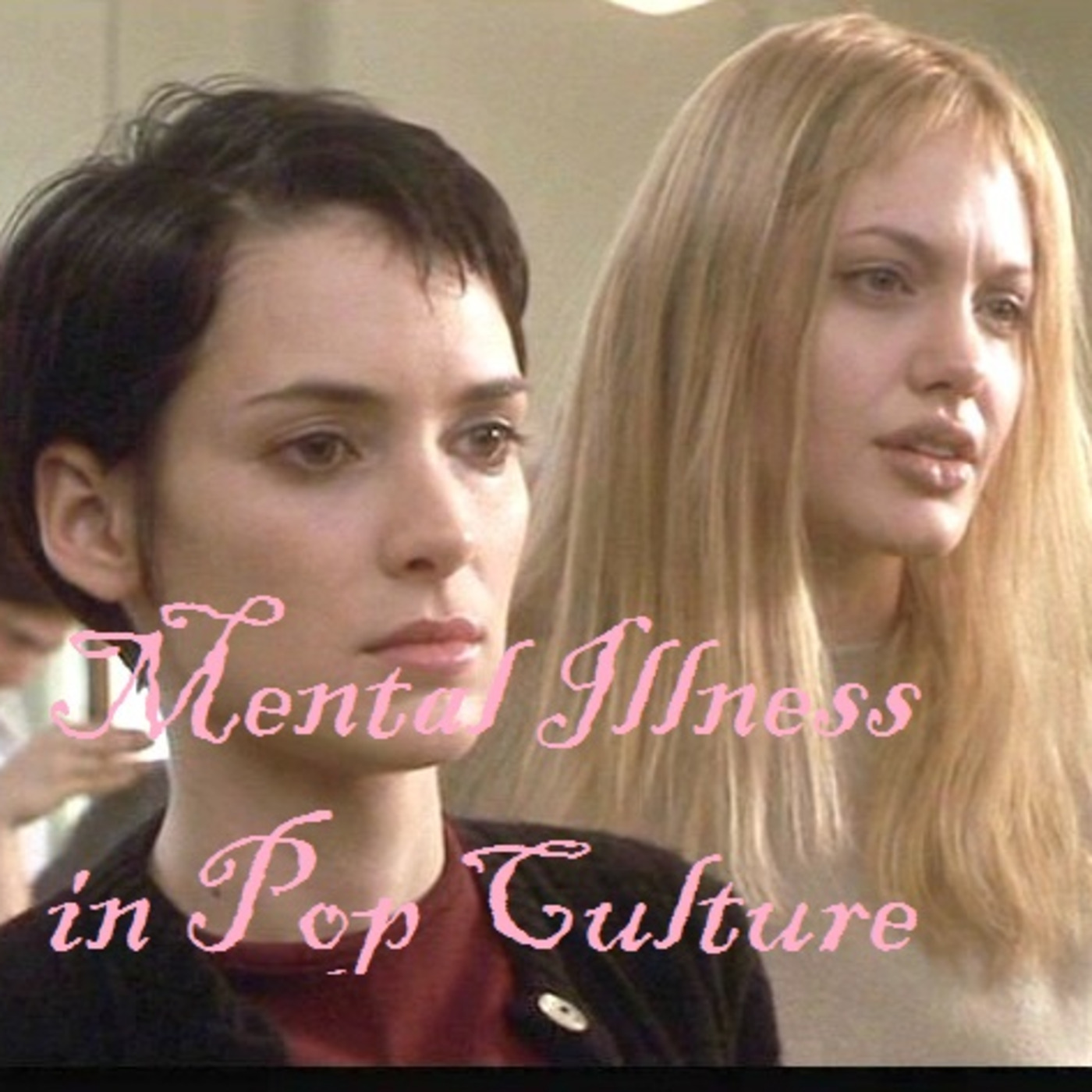 Mental Illness in Pop CultureGirl Interrupted: Mental Illness in Pop CultureNote: This episode contains quoting of main characters using profanity.
In this series, we focus on pop culture portrayals of mental health issues and professional helping, believing that media both reflect and influence popular perception. In this episode, we focus on the mental health issues of Susannah Kaysen and other psychiatric patients in the film Girl Interrupted as well as how helping is portrayed by various professionals and paraprofessionals.2016-10-251h 22
Mental Illness in Pop CultureGirl Interrupted: Mental Illness in Pop CultureNote: This episode contains quoting of main characters using profanity.
In this series, we focus on pop culture portrayals of mental health issues and professional helping, believing that media both reflect and influence popular perception. In this episode, we focus on the mental health issues of Susannah Kaysen and other psychiatric patients in the film Girl Interrupted as well as how helping is portrayed by various professionals and paraprofessionals.2016-10-251h 22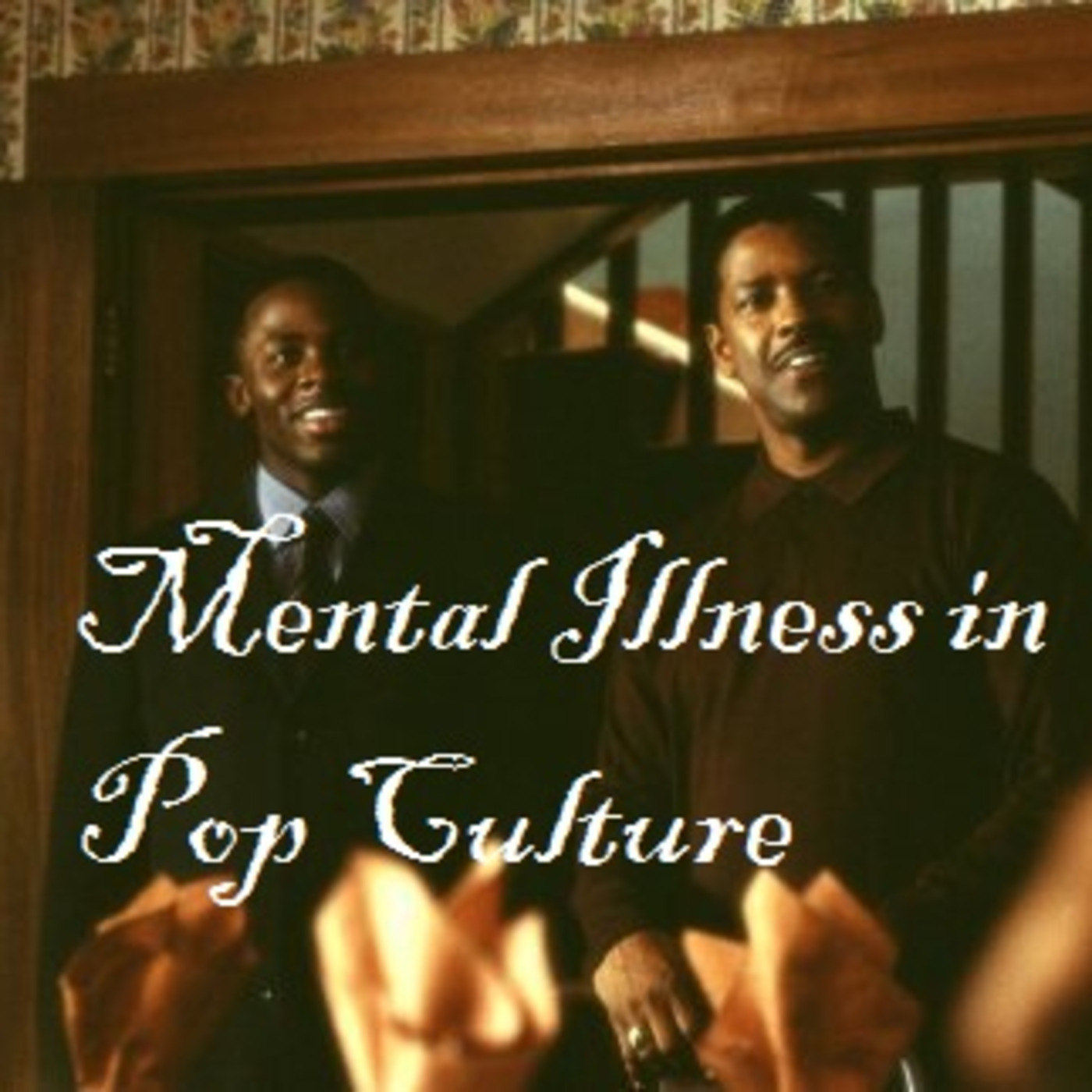 Mental Illness in Pop CultureAntwone Fisher: Mental Illness in Pop CultureIn this series, we focus on pop culture portrayals of mental health issues and professional helping, believing that media both reflect and influence popular perception. In this episode, we focus on the real-life character Antwone Fisher and his mental health issues as well as how professional helping is portrayed in this film.2016-10-181h 23
Mental Illness in Pop CultureAntwone Fisher: Mental Illness in Pop CultureIn this series, we focus on pop culture portrayals of mental health issues and professional helping, believing that media both reflect and influence popular perception. In this episode, we focus on the real-life character Antwone Fisher and his mental health issues as well as how professional helping is portrayed in this film.2016-10-181h 23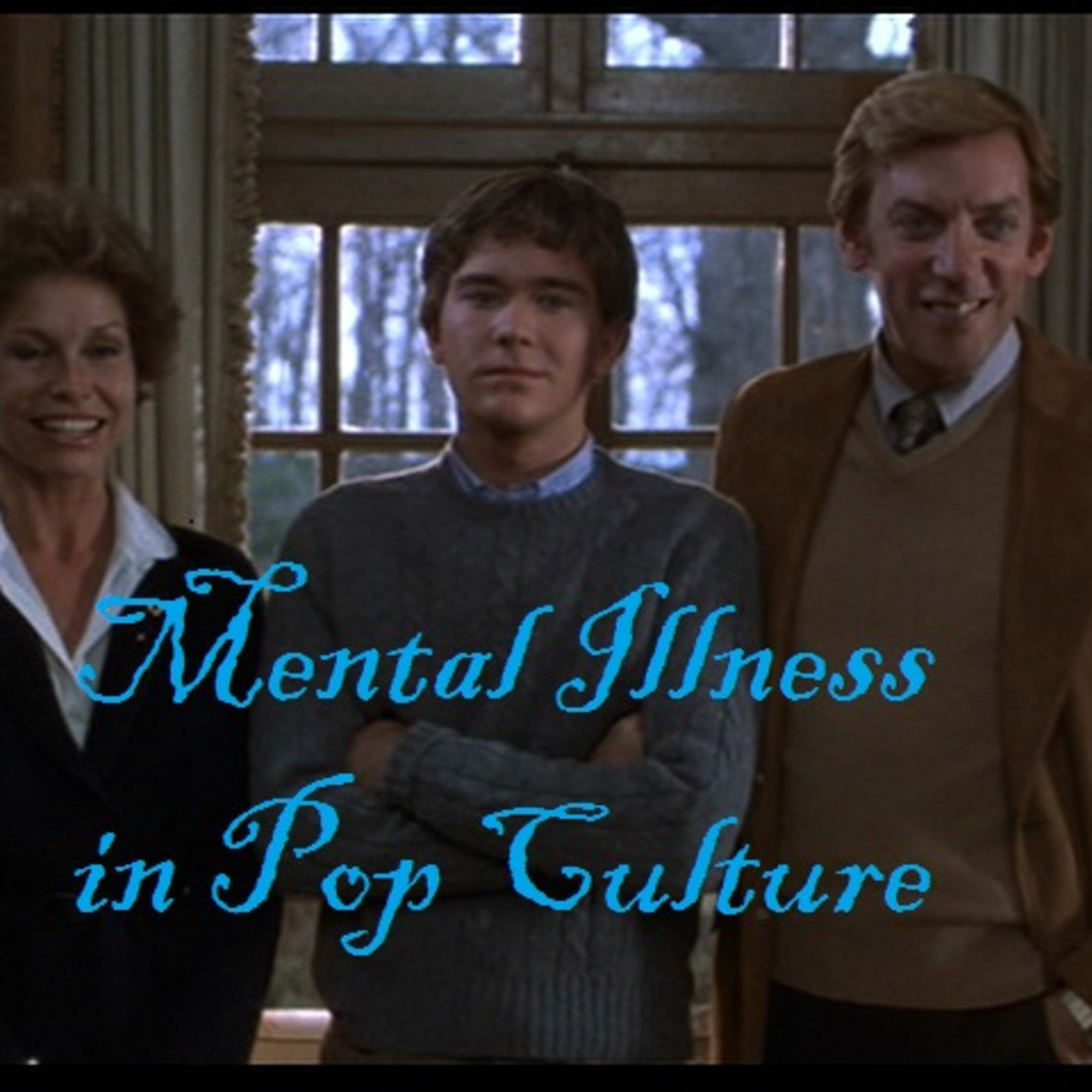 Mental Illness in Pop CultureOrdinary People: Mental Illness in Pop CultureIn this series, we focus on pop culture portrayals of mental health issues and professional helping, believing that media both reflect and influence popular perception. In this episode, we focus on relationships in the film Ordinary People that main character Conrad Jarrett has with his parents, brother, girlfriend, friends, and coach. We pay special attention to the therapeutic relationship Conrad has with professional helper Dr. Berger in a film where ordinary people have to cope with extraordinary circumstances.2016-10-111h 15
Mental Illness in Pop CultureOrdinary People: Mental Illness in Pop CultureIn this series, we focus on pop culture portrayals of mental health issues and professional helping, believing that media both reflect and influence popular perception. In this episode, we focus on relationships in the film Ordinary People that main character Conrad Jarrett has with his parents, brother, girlfriend, friends, and coach. We pay special attention to the therapeutic relationship Conrad has with professional helper Dr. Berger in a film where ordinary people have to cope with extraordinary circumstances.2016-10-111h 15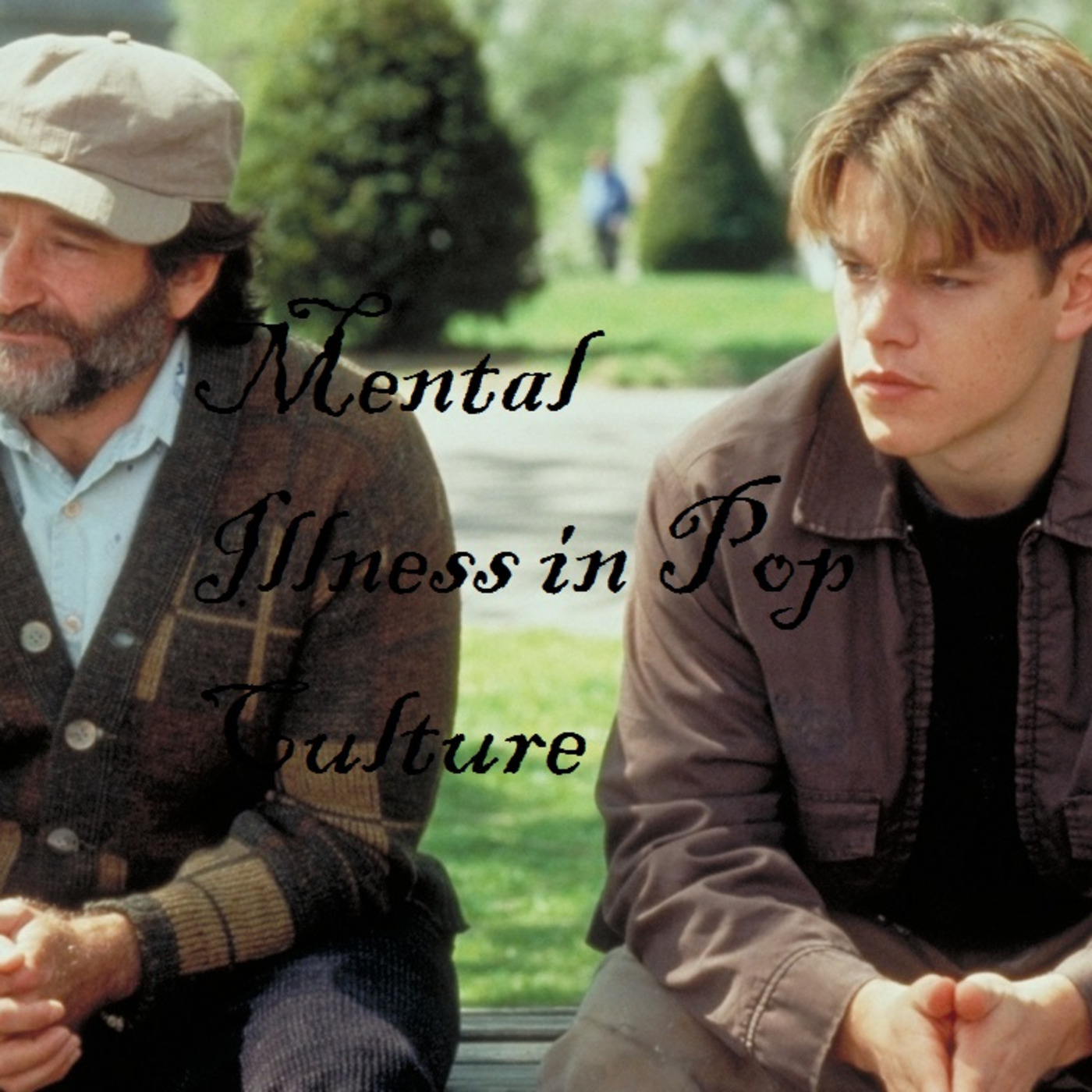 Mental Illness in Pop CultureGood Will Hunting: Mental Illness in Pop CultureIn this series, we focus on pop culture portrayals of mental health issues and professional helping, believing that media both reflect and influence popular perception. In this episode, we focus on the film Good Will Hunting, giving most of our attention to the counseling relationship between Will and Sean, his counselor.2016-10-041h 16
Mental Illness in Pop CultureGood Will Hunting: Mental Illness in Pop CultureIn this series, we focus on pop culture portrayals of mental health issues and professional helping, believing that media both reflect and influence popular perception. In this episode, we focus on the film Good Will Hunting, giving most of our attention to the counseling relationship between Will and Sean, his counselor.2016-10-041h 16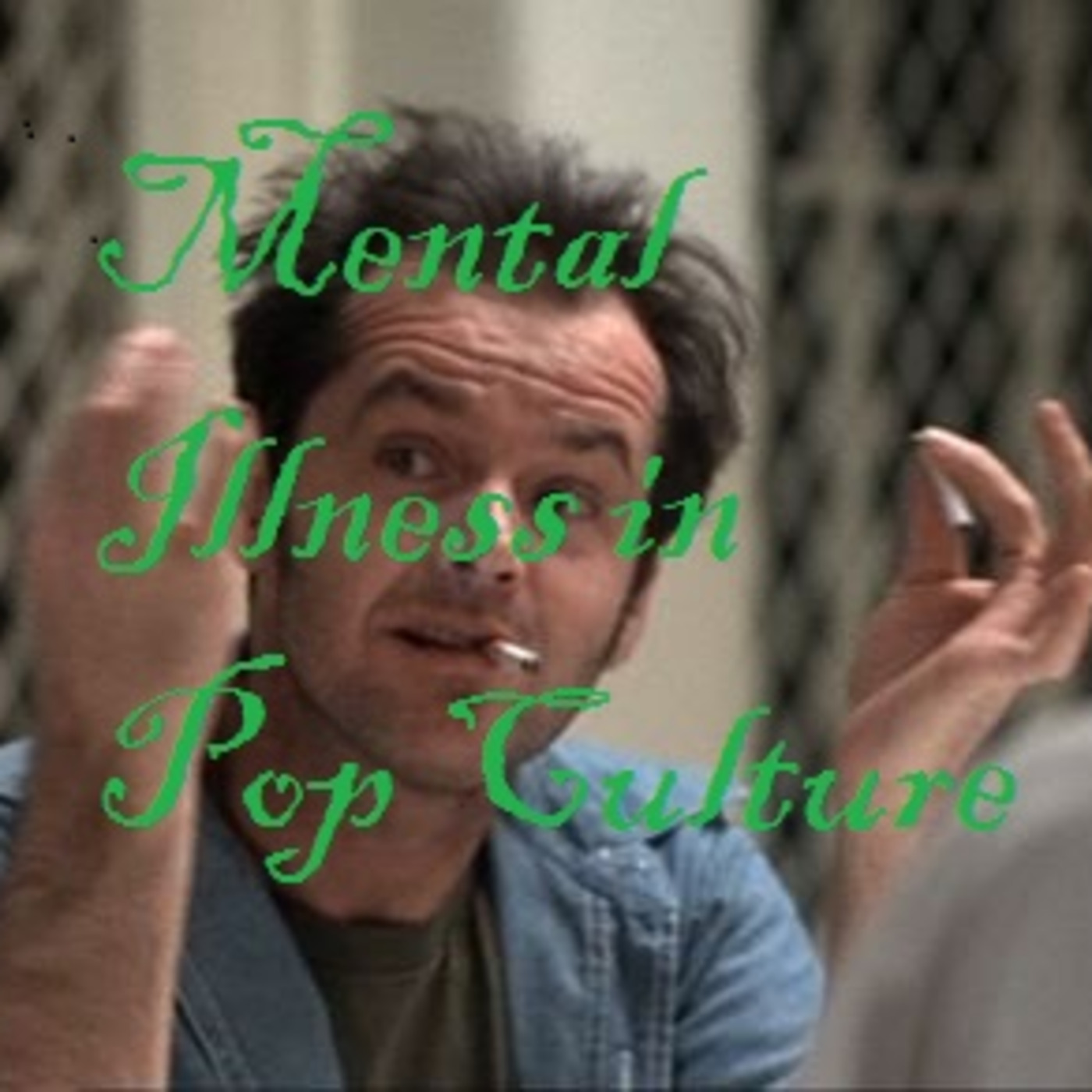 Mental Illness in Pop CultureIntroductory Episode: Mental Illness in Pop CultureWe focus on mental health issues and professional helping as portrayed in popular culture, with the belief that media both reflect and shape public perception of these topics. In this episode, we introduce ourselves and talk about why doing a podcast on this subject interests us.2016-09-3042 min
Mental Illness in Pop CultureIntroductory Episode: Mental Illness in Pop CultureWe focus on mental health issues and professional helping as portrayed in popular culture, with the belief that media both reflect and shape public perception of these topics. In this episode, we introduce ourselves and talk about why doing a podcast on this subject interests us.2016-09-3042 min